N3C in the News

An evaluation of the replicability of analyses using synthetic health data
Synthetic data generation is being increasingly used as a privacy preserving approach for sharing health data. In addition to protecting privacy, it is important to ensure that generated data has high utility. - nature scientific reports; Khaled El Emam, et.al; March 24, 2024

Comparative effectiveness of dexamethasone in treatment of hospitalized COVID-19 patients in the United States during the first year of the pandemic: Findings from the National COVID Cohort Collaborative (N3C) data repository
Dexamethasone was approved for use in hospitalized COVID-19 patients early in the pandemic based on the RECOVERY trial, but evidence is still needed to support its real-world effectiveness in heterogeneous populations of patients with a wide range of comorbidities. - PubMed; Richard Zhou, et.al; March 21, 2024

Comparative effectiveness of dexamethasone in treatment of hospitalized COVID-19 patients in the United States during the first year of the pandemic: Findings from the National COVID Cohort Collaborative (N3C) data repository
Background Dexamethasone was approved for use in hospitalized COVID-19 patients early in the pandemic based on the RECOVERY trial, but evidence is still needed to support its real-world effectiveness in heterogeneous populations of patients with a wide range of comorbidities. - Research Gate; Richard Zhou, et.al; March 21, 2024

Comparative effectiveness of dexamethasone in treatment of hospitalized COVID-19 patients in the United States during the first year of the pandemic: Findings from the National COVID Cohort Collaborative (N3C) data repository
Dexamethasone was approved for use in hospitalized COVID-19 patients early in the pandemic based on the RECOVERY trial, but evidence is still needed to support its real-world effectiveness in heterogeneous populations of patients with a wide range of comorbidities. - PLOS ONE; Richard Zhou, et.al; March 21, 2024

Long COVID Challenge: Predictive Modeling of Noisy Clinical Tabular Data
We present an end-to-end machine learning pipeline for aggregating, analyzing, and modeling National COVID Cohort Collaborative (N3C) data on the Enclave system as part of the NIH Long COVID Computational Challenge (L3C). - IEEE Xplore; Mirna Elizondo, et.al; March 8, 2024

Identifying the capabilities for creating next-generation registries: a guide for data leaders and a case for “registry science”
The increasing demands for curated, high-quality research data are driving the emergence of a novel registry type. - JAMIA; Steven E Labkoff, MD, et. al; February 23, 2024

Real-World Effectiveness of Sotrovimab for the Early Treatment of COVID-19: Evidence from the US National COVID Cohort Collaborative (N3C)
The coronavirus disease 2019 (COVID-19) pandemic has been an unprecedented healthcare crisis, one that threatened to overwhelm health systems and prompted an urgent need for early treatment options for patients with mild-to-moderate COVID-19 at high risk for progression to severe illness. - Springer Medizin; Christopher F. Bell, et. al; February 20, 2024

Real-World Effectiveness of Sotrovimab for the Early Treatment of COVID-19: Evidence from the US National COVID Cohort Collaborative (N3C)
The coronavirus disease 2019 (COVID-19) pandemic has been an unprecedented healthcare crisis, one that threatened to overwhelm health systems and prompted an urgent need for early treatment options for patients with mild-to-moderate COVID-19 at high risk for progression to severe disease. - PubMed; Christopher F Bell, et. al; February 20, 2024
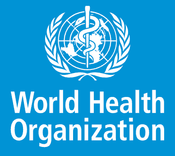
Finding Long-COVID: Temporal Topic Modeling of Electronic Health Records from the N3C and RECOVER Programs (preprint)
Post-Acute Sequelae of SARS-CoV-2 infection (PASC), also known as Long-COVID, encompasses a variety of complex and varied outcomes following COVID-19 infection that are still poorly understood. - World Health Organization; Shawn O'Neil et. al; February 17. 2024

COVID-19 diagnosis prior to TJA may increase complication risk
Results presented here showed patients who underwent total hip or knee arthroplasty within 2 weeks of a COVID-19 diagnosis were at an increased risk for venous thromboembolism, sepsis and surgical site infection. - Healio; Casey Tingle; February 15, 2024

The Impact of COVID-19 on Total Hip and Knee Arthroplasty: A Comprehensive Study
Recent research presented at the American Academy of Orthopaedic Surgeons Annual Meeting has shed light on the complications associated with patients who undergo total hip or knee arthroplasty within two weeks of a COVID-19 diagnosis. - Medriva; Dr. Jessica Nelson; February 15, 2024

Booster Vaccines Effective for Severe COVID-19 During Delta, Omicron Periods
COVID-19 booster vaccines were highly effective against breakthrough infection and adverse outcomes during the Delta-predominant period and offered a lesser degree of protection during the Omicron period, researchers reported in Open Forum Infectious Diseases. - Pulmonology Advisor; Colby Strong; February 9, 2024

February 7, 2024: Unlocking the Power of Data for Faster Health Solutions
Finding important links among different types of data is key to bringing more treatments to all people more quickly. We have invested in new ways to connect, access, and learn from large and complex data sets. - National Center for Advancing Translational Sciences; Director's Message; February 7, 2024

The Intersections of COVID-19, HIV, and Race/Ethnicity: Machine Learning Methods to Identify and Model Risk Factors for Severe COVID-19 in a Large U.S. National Dataset
We investigate risk factors for severe COVID-19 in persons living with HIV (PWH), including among racialized PWH, using the U.S. population-sampled National COVID Cohort Collaborative (N3C) data released from January 1, 2020 to October 10, 2022. - PubMed; Miranda Kunz, et. al; February 7, 2024

The Intersections of COVID-19, HIV, and Race/Ethnicity: Machine Learning Methods to Identify and Model Risk Factors for Severe COVID-19 in a Large U.S. National Dataset
We investigate risk factors for severe COVID-19 in persons living with HIV (PWH), including among racialized PWH, using the U.S. population-sampled National COVID Cohort Collaborative (N3C) data released from January 1, 2020 to October 10, 2022. - Springer Link; Miranda Kunz, et. al; February 7, 2024

SSRI Use During Acute COVID-19 Infection Associated with Lower Risk of Long COVID Among Patients with Depression
Long COVID, also known as post-acute sequelae of COVID-19 (PASC), is a poorly understood condition with symptoms across a range of biological domains that often have debilitating consequences. - medRxiv; Zachary Butzin-Dozier, et. al; February 6, 2024

Paxlovid Is Effective but Underused—Here’s What the Latest Research Says About Rebound and More
Anyone who watches television has probably seen the Pfizer commercial with the tagline, “If it’s COVID, Paxlovid.” That might be a catchy slogan, but, apparently, a lot of people aren’t getting the message. - JAMA Network; Rita Rubin, MA; January 31, 2024

Influence of Prior SARS-CoV-2 Infection on COVID-19 Severity: Evidence from the National COVID Cohort Collaborative
As SARS-CoV-2 has transitioned from a pandemic to endemic disease, the majority of new infections have been among previously infected individuals. To manage the risks and benefits of ongoing COVID-19 policies, it is important to understand whether prior infection modifies the severity of subsequent infections. - medRxiv; Nathaniel Hendrix, et. al; January 26, 2024

Datavant Joins NSF and Partners in Launch of the National AI Research Resource (NAIRR) Pilot Providing Privacy-Preservation Technologies to Safeguard AI-Enabled Data
In collaboration with 11 federal agencies, alongside private sector, nonprofit, and philanthropic organizations, the NAIRR pilot is set to offer U.S.-based researchers and educators access to cutting-edge computing, datasets, models, software, training, and user support. - PR Newswire; Datavant; January 25, 2024

Effect of Paxlovid Treatment on Long COVID Onset: An EHR-Based Target Trial Emulation from N3C
Preventing and treating post-acute sequelae of SARS-CoV-2 infection (PASC), commonly known as Long COVID, has become a public health priority. In this study, we examined whether treatment with Paxlovid in the acute phase of COVID-19 helps prevent the onset of PASC. - medRxiv; Alexander Preiss, et. al.; January 22, 2024

N3C Data Help Validate Two Clinical Tools to Predict COVID-19 Mortality Risk
For people hospitalized with COVID-19, two new risk-prediction tools, tested in part using the NCATS National COVID Cohort Collaborative (N3C), could help clinicians make faster, better treatment decisions. - New Jersey Alliance for Clinical and Translational Science; William Jester; January 19, 2024

Privacy‐preserving record linkage across disparate institutions and datasets to enable a learning health system: The national COVID cohort collaborative ( N3C ) experience
Introduction Research driven by real‐world clinical data is increasingly vital to enabling learning health systems, but integrating such data from across disparate health systems is challenging. - ResearchGate; Umberto TachinardiUmberto Tachinardi, et.al; January 14, 2024

The effectiveness of COVID-19 vaccines to prevent long COVID symptoms: staggered cohort study of data from the UK, Spain, and Estonia
Although vaccines have proved effective to prevent severe COVID-19, their effect on preventing long-term symptoms is not yet fully understood. - The Lancet Respiratory Medicine; Martí Català, PhD, et. al; January 11, 2024

Privacy-preserving record linkage across disparate institutions and datasets to enable a learning health system: The national COVID cohort collaborative (N3C) experience
Research driven by real-world clinical data is increasingly vital to enabling learning health systems, but integrating such data from across disparate health systems is challenging. As part of the NCATS National COVID Cohort Collaborative (N3C), the N3C Data Enclave was established as a centralized repository of deidentified and harmonized COVID-19 patient data from institutions across the US. - Wiley Online Learning; Umberto Tachinardi, et. al; January 11, 2024

Palantir Partners with University of Colorado Anschutz Medical Campus to Establish the All of Us Research Program’s Center for Linkage and Acquisition of Data (CLAD)
Palantir Technologies Inc. (NYSE: PLTR) today announced its partnership with the University of Colorado Anschutz Medical Campus to establish the Center for Linkage and Acquisition of Data (CLAD) as part of the National Institutes of Health’s (NIH) All of Us Research Program. - Yahoo! Finance; Business Wire; January 11, 2024

Doctors Aren’t Prescribing Paxlovid Often Enough. Here’s Why
Covid-19 infections and deaths have been steadily increasing in recent weeks, now reaching 1,500 deaths per week. There are antiviral drugs that still protect against severe infection and death, yet practitioners prescribe them infrequently. Why? - Forbes; Judy Stone; January 9, 2024

Drug-drug interaction between dexamethasone and direct-acting oral anticoagulants: A nested case-control study in the National COVID Cohort Collaborative (N3C)
Objective The goal of this work is to evaluate if there is an increase in the risk of thromboembolic events (TEEs) due to concomitant exposure to dexamethasone and apixaban or rivaroxaban. - PennState; Olga V. Kravchenko, et. al; January 8, 2024

Severe covid-19 infections linked to increased risk of schizophrenia
People with severe covid-19 infections are more than 4 times as likely to later be diagnosed with schizophrenia than people who have not been infected, though the risk of developing the condition is relatively low. - NewScientist; Grace Wade; January 3, 2024

Generalisable long COVID subtypes: findings from the NIH N3C and RECOVER programmes
Stratification of patients with post-acute sequelae of SARS-CoV-2 infection (PASC, or long COVID) would allow precision clinical management strategies. - Science Direct; Justin Reese, et. al; December 27, 2023

Schizophrenia Research Roundup: December 22, 2023
This study, analyzing data from 19,344,698 patients, investigated the long-term psychiatric effects of COVID-19, with a focus on schizophrenia spectrum and psychotic disorders (SSPD). - Psychiatric Times; Erin O'Brien; December 22, 2023

Studies Investigate Whether Antivirals Like Paxlovid May Prevent Long COVID
The US Food and Drug Administration has yet to approve any drugs for preventing or treating post–COVID-19 condition, also known as long COVID—defined by the US government as health issues that continue or develop 4 weeks or more after an initial SARS-CoV-2 infection. - JAMA Network; Melissa Suran, PhD, MSJ; December 13, 2023

A tool in battling COVID: Simple liver test developed by VCU researcher is highly predictive of a patient’s need for respirator
A simple, widely used test developed by a Virginia Commonwealth University researcher to predict advanced liver disease can also predict which COVID-19 patients might need a respirator, with patients higher on the scale almost twice as likely to need help to breathe. - VCU News; A.J. Hostetler; December 12, 2023

Identifying Protective Factors in COVID-19 Severity and Survival: Insights from SATT Analysis with Counterfactual Explanation in MM Patients
The study focused on evaluating risk factors linked to severe COVID-19 outcomes and mortality in individuals diagnosed with multiple myeloma (MM). - Physician's Weekly; December 11, 2023

Sample average treatment effect on the treated (SATT) analysis using counterfactual explanation identifies BMT and SARS-CoV-2 vaccination as protective risk factors associated with COVID-19 severity and survival in patients with multiple myeloma
Patients with multiple myeloma (MM), an age-dependent neoplasm of antibody-producing plasma cells, have compromised immune systems and might be at increased risk for severe COVID-19 outcomes. - Nature; Amit Kumar Mitra et. al; December 7, 2023

SARS-CoV-2 Infection is Associated with an Increase in New Diagnoses of Schizophrenia Spectrum and Psychotic Disorder: A Study Using the US National COVID Cohort Collaborative (N3C)
Amid the ongoing global repercussions of SARS-CoV-2, it’s crucial to comprehend its potential long-term psychiatric effects. - medRxiv; Asif Rahman et.al; December 5, 2023

N3C Data Help Validate Two Clinical Tools to Predict COVID-19 Mortality Risk
For people hospitalized with COVID-19, two new risk-prediction tools, tested in part using the NCATS National COVID Cohort Collaborative (N3C), could help clinicians make faster, better treatment decisions. The tools use a patient’s age and five common lab tests to analyze their risk of death more rapidly and accurately. - National Center for Advancing Translational Sciences; November 24, 2023

Use of Tokens to Unlock Greater Data Sharing in Health Care
In 2023, the National Institutes of Health (NIH) issued a new requirement for recipients of NIH funds to submit plans for managing and sharing clinical trial data in public repositories. - JAMA Network; Kanan Shah, et. al; November 20, 2023

The N3C governance ecosystem: a model socio-technical partnership for the future of collaborative analytics at scale
The National COVID Cohort Collaborative (N3C) is a public-private-government partnership established during the Coronavirus pandemic to create a centralized data resource called the “N3C data enclave”.
- Cambridge University Press; November 14, 2023; Christine Suver et. al

With a new center, All of Us tackles health data silos to power precision medicine
Over the past five years, two unique federal efforts have collected the health records of millions of Americans. They’ve assembled billions of clinical observations, medication logs, lab results, and more with the goal of supercharging public health research. - STAT News; November 2, 2023; Katie Palmer

Risk factors associated with post-acute sequelae of SARS-CoV-2: an N3C and NIH RECOVER study
More than one-third of individuals experience post-acute sequelae of SARS-CoV-2 infection (PASC, which includes long-COVID). The objective is to identify risk factors associated with PASC/long-COVID diagnosis. - PubMed; Elaine L Hill, et.al; October 25, 2023

Listen: This NIH Center’s Plan Tackles Emerging Tech, Big Data Challenges
NCATS is preparing to roll out its latest plan to leverage emerging technologies, tackle translational barriers and encourage feedback from constituents. - Gov CIO Media; Health Cast; October 25, 2023

The Future of AI and Informatics in Radiology: 10 Predictions
Artificial intelligence (AI) and informatics are transforming radiology. Ten years ago, no expert would have predicted today’s vibrant radiology AI industry with over 100 AI companies and nearly 400 radiology AI algorithms cleared by the U.S. Food and Drug Administration (FDA). - RSNA; Curtis P. Langlotz; October 24, 2023

Revolutionizing Research: Countrywide Databases Unleash Discovery but Not So Fast in the US
Which conditions are caused by infection? Though it may seem like an amateur concern in the era of advanced microscopy, some culprits evade conventional methods of detection. Large medical databases hold the power to unlock answers. -MedScape; Lindsay Kalter; October 19, 2023

What causes long COVID? The answer might be in your gut
New research shows that remnants of the virus in the gut cause chronic inflammation—which may disrupt communication with the brain. Can antidepressants help? Nearly one in five people who have had COVID-19 in the United States continue to suffer from symptoms of long COVID. - National Geographic; October 17, 2023

Augmenting the National COVID Cohort Collaborative (N3C) Dataset with Medicare and Medicaid (CMS) Data, Secure and Deidentified Clinical Dataset
The National COVID Cohort Collaborative (N3C) data Enclave is a platform that provides researchers access to COVID-related patient EHR data in OMOP CDM format. - OHDSI; Stephanie Hong, et. al; October 13, 2023

Outcomes of SARS-CoV-2 Infection Among Patients with Orthopaedic Fracture Surgery in the National COVID Cohort Collaborative (N3C)
The objective of this study was to investigate the outcomes of COVID-19-positive patients undergoing orthopaedic fracture surgery using data from a national database of U.S. adults with a COVID-19 test for SARS-CoV-2. - Injury; Eli Levitt, et. al; October 11, 2023

Effectiveness of various COVID-19 vaccine regimens among 10.4 million patients from the National COVID Cohort Collaborative during Pre-Delta to Omicron periods - United States, 11 December 2020 to 30 June 2022
This study reports the vaccine effectiveness (VE) of COVID-19 vaccine regimens in the United States, based on the National COVID Cohort Collaborative (N3C) database. - PubMed; Yuanyuan Fu, et. al; October 6, 2023

Scalable Infrastructure Supporting Reproducible Nationwide Healthcare Data Analysis toward FAIR Stewardship
Transparent and FAIR disclosure of meta-information about healthcare data and infrastructure is essential but has not been well publicized. In this paper, we provide a transparent disclosure of the process of standardizing a common data model and developing a national data infrastructure using national claims data. nature; Ji-Woo Kim, et.al; October 4, 2023

Epidemiology and Severity of Illness of MIS-C and Kawasaki Disease During the COVID-19 Pandemic
Multisystem inflammatory syndrome in children (MIS-C) is a novel, severe condition following severe acute respiratory syndrome coronavirus 2 infection. Large epidemiologic studies comparing MIS-C to Kawasaki disease (KD) and evaluating the evolving epidemiology of MIS-C over time are lacking. - American Academy of Pediatrics; Matthew J. Molloy, MD, MPH, et.al; October 4, 2023

Scalable Infrastructure Supporting Reproducible Nationwide Healthcare Data Analysis toward FAIR Stewardship
Transparent and FAIR disclosure of meta-information about healthcare data and infrastructure is essential but has not been well publicized. In this paper, we provide a transparent disclosure of the process of standardizing a common data model and developing a national data infrastructure using national claims data. Scientific Data; Ji-Woo Kim, et. al; October 4, 2023

A temporal analysis of perioperative complications following COVID-19 infection in patients undergoing lumbar spinal fusion: When is it safe to proceed?
COVID-19 has been shown to adversely affect multiple organ systems, yet little is known about its effect on perioperative complications after spine surgery or the optimal timing of surgery after an infection. We used the NIH National COVID Cohort Collaborative (N3C) database to characterize the risk profile in patients undergoing spine surgery during multiple time windows following COVID-19 infection. - UC Irvine; Justin Chan, et. al; October 1, 2023

Building off ChatGPT Popularity, Generative AI Starts Finding its Place in Genome Informatics
Generative artificial intelligence, which exploded into the public's consciousness after the November 2022 release of ChatGPT, is starting to find its way into genomics and bioinformatics. - genomeweb; Neil Versel; September 20, 2023

University of Colorado Anschutz Medical Campus receives $54 million from NIH
The National Institutes of Health has awarded $54 million over a seven-year period to the CCTSI at CU Anschutz. The grant from the National Center for Advancing Translational Sciences (NCATS) will fuel biomedical research and training across the state. - EurekAlert; September 18, 2023

Informed consent: Maximising compliance and minimising risk
The Tuskegee Study of Untreated Syphilis in African American males highlighted not only the importance but also the risks associated with the lack of informed consent in clinical research [1]. - Laboratory News; September 12, 2023

Finding Long-COVID: Temporal Topic Modeling of Electronic Health Records from the N3C and RECOVER Programs
Post-Acute Sequelae of SARS-CoV-2 infection (PASC), also known as Long-COVID, encompasses a variety of complex and varied outcomes following COVID-19 infection that are still poorly understood. - medRxiv; Shawn O'Neil, et.al; September 11, 2023

CASE STUDY: THE NATIONAL COVID COHORT COLLABORATIVE (N3C)
The National COVID Cohort Collaborative (N3C) was rapidly established in spring 2020 as an open science partnership between the 60 Clinical and Translational Science Awards (CTSA) Program hub sites, the National Center for Data to Health (CD2H), multiple distributed clinical data research networks, and other partner organizations (Haendel et al., 2021; NCATS, 2021; CNDH, 2021).
- NIH Library of Medicine; Melissa Haendel, PhD, Chris Chute, DrPH, MD, MPH, Andrea Volz; August 31, 2023

Time-to-Surgery and Short-Term Outcomes of Trimalleolar Ankle Fracture During the COVID-19 Pandemic
During the coronavirus disease 2019 (COVID-19) pandemic, a rapid and significant transformation in patient management occurred across the healthcare system in order to mitigate the spread of the disease and address resource constraints. - Cureus; Gabriel B. Burdick et. al; August 31, 2023

The Endocannabinoidome: Clinical Practice Applications
Medical education today rarely intersects with botany, and schools and most medical textbooks don’t teach about the neurology of the endocannabinoidome (eCB). Instead, doctors are offered a prescription medication for virtually every symptom or ailment.
- Dynamic Chiropractic; David C. Radford, DC, MS; Matthew Levy, MD; August 16, 2023

The presence or absence of smell and taste loss
The presence or absence of smell and taste loss is no longer a reliable way to tell if you’ve got COVID or not.
- now smell this; Robin; August 11, 2023

An Open Natural Language Processing (NLP) Framework for EHR-based Clinical Research: A Case Demonstration Using the National COVID Cohort Collaborative (N3C)
Despite recent methodology advancements in clinical natural language processing (NLP), the adoption of clinical NLP models within the translational research community remains hindered by process heterogeneity and human factor variations.
- PubMed; Sijia Liu et. al; August 9, 2023

Losing Your Sense of Smell Is No Longer a Reliable Sign of COVID
The presence or absence of smell and taste loss is no longer a reliable way to tell if you've got COVID or not.
- verywellhealth; Carla Delgado; August 9, 2023

Loss of smell no longer means COVID
With COVID-19 hospitalizations up more than 12% in the last week, per the U.S. Centers for Disease Control and Prevention, it’s again time to pay closer attention to symptoms often brushed off as “just a cold.”
- Audacy; Lauren Barry; August 9, 2023

An Open Natural Language Processing (NLP) Framework for EHR-based Clinical Research: A Case Demonstration Using the National COVID Cohort Collaborative (N3C)
Despite recent methodology advancements in clinical natural language processing (NLP), the adoption of clinical NLP models within the translational research community remains hindered by process heterogeneity and human factor variations.
- JAMIA; Sijia Liu et. al; August 9, 2023

Certain Medications Tied to Post-COVID Pulmonary Fibrosis
Pre-infection exposures to rituximab (Rituxan) or chemotherapy were associated with an increased incidence of pulmonary fibrosis in adults hospitalized for COVID-19, a nationwide cohort study suggested.
- MedPage Today; Michele Sullivan; August 8, 2023

Potential drug-drug interactions among U.S. adults treated with nirmatrelvir/ritonavir: A cross-sectional study of the national covid cohort collaborative (N3C)
Cross-sectional study using electronic health records from the National COVID Cohort Collaborative Enclave, one of the largest COVID-19 data resources in the United States. Study participants were outpatients aged ≥18 years and started nirmatrelvir/ritonavir between December 23, 2021 and March 31, 2022.
- PubMed; Xuya Xiao et. al; August 4, 2023

Predicting Long COVID in the National COVID Cohort Collaborative Using Super Learner
Post-acute Sequelae of COVID-19 (PASC), also known as Long COVID, is a broad grouping of a range of long-term symptoms following acute COVID-19 infection.
- sciety; Zachary Butzin-Dozier et. al, August 4, 2023

Predicting Long COVID in the National COVID Cohort Collaborative Using Super Learner
Post-acute Sequelae of COVID-19 (PASC), also known as Long COVID, is a broad grouping of a range of long-term symptoms following acute COVID-19 infection.
- medRxiv; Zachary Dozier et. al; August 4, 2023

Pharmacotherapy and pulmonary fibrosis risk after SARS-CoV-2 infection: a prospective nationwide cohort study in the United States
Pulmonary fibrosis is characterized by lung parenchymal destruction and can increase morbidity and mortality. Pulmonary fibrosis commonly occurs following hospitalization for SARS-CoV-2 infection.
- The Lancet; Ayodeji Adegunsoye, et al. ; August 1, 2023

New VCU Study suggests smell and taste loss no longer COVID-19 infection indicator
RICHMOND, Va. (WRIC) --- A new study led by researchers at Virginia Commonwealth University's (VCU) School of Medicine suggests smell and taste loss are no longer reliable indicators of a COVID-19 infection.
- 8News; Victoria Lucas; July 23, 2023

The Effects of Anti-platelets and Micronutrients in the Recovery of COVID-19 Patients: A Review
COVID-19 or coronavirus disease is a pneumonia-like condition caused by the SARS-CoV2 virus. Many mutations of this virus have emerged throughout the two-year period of this pandemic. However, clinical presentations, diagnostic methods, and treatment of COVID-19 remain relatively unchanged.
- Cureus; Singh G, Fauzi N; July 19, 2023

Anticoagulant Use Common in COVID-19 Hospitalizations Until Omicron Emergence
Results of a study published in The Journal of Infectious Diseases show that anticoagulants were commonly used among patients hospitalized with COVID-19 infection until the emergence of the Omicron variant.
- Hematology Advisor; Mabel Chan; July 14, 2023

Anticoagulant Use Common in COVID-19 Hospitalizations Until Omicron Emergence
Results of a study published in The Journal of Infectious Diseases show that anticoagulants were commonly used among patients hospitalized with COVID-19 infection until the emergence of the Omicron variant.
- Infectious Disease Advisor; Mabel Chan; July 12, 2023

New N3C PHASTR questions open for application
The National COVID Cohort Collaborative (N3C) PHASTR is designed to quickly address high-impact questions that can be answered with N3C data.
- North Carolina Translational and Clinical Science Institute; July 3, 2023

BARDA partners with ARIScience to accelerate screening for respiratory stimulant candidates for opioid overdoses
N3C is pleased to announce that ARIScience, an early user of N3C and also one of the finalists of N3C based COVID-19 AI pediatric challenge, has been awarded a research and development contract by the United States Biomedical Advanced Research Development Agency (BARDA) to discover candidate small molecules to counter respiratory depression by targeting two specific proteins. ARIScience continues to push its artificial intelligence combined with quantum chemistry-driven small molecule therapy discovery platform to target proteins that lie in disease pathways directly or allosterically across multiple disease conditions.

Obstructive Sleep Apnea May Increase Risk for Long COVID Among Adults
Adults with obstructive sleep apnea (OSA) are more likely to experience postacute sequalae of SARS-CoV-2 (PASC), or long COVID, according to study findings published in the journal Sleep.
- Cardiology Advisor; Ellen Kurek; June 28, 2023

Obstructive sleep apnea associated with increased risks for long COVID
Among people who have had COVID-19, adults with obstructive sleep apnea were more likely to experience long-term symptoms suggestive of long COVID than those without the sleep disorder, according to a large study supported by the National Institutes of Health (NIH).
- Highland County Press; National Institutes of Health; June 19, 2023

Prior Autoimmune Disease and Use of IS Linked to Worse COVID-19 Outcomes
Adults with pre-existing autoimmune disease (AID), exposure to immunosuppressants (IS), or both are more likely to have a life-threatening disease or hospitalization with COVID-19, researchers reported in Clinical Infectious Diseases.
- Pulmonology Advisor; Colby Stong; June 16, 2023

Obstructive Sleep Apnea May Increase Risk for Long COVID Among Adults
Adults with obstructive sleep apnea (OSA) are more likely to experience postacute sequalae of SARS-CoV-2 (PASC), or long COVID, according to study findings published in the journal Sleep.
- Neurology Advisor; Ellen Kurek; June 15, 2023

UVA Among National Leaders in Collaborations, Publications on COVID-19
The COVID-19 pandemic spurred numerous new research collaborations as scientists scrambled to understand the rapidly spreading virus, and the University of Virginia was among national leaders in those partnerships, according to new data published by the National COVID Cohort Collaborative.
- UVA Data Science; Caroline Newman; June 15, 2023

COVID-19-Associated Smell, Taste Disturbance Is Declining
During recent omicron waves, there was a decrease in the rate of COVID-19-associated smell or taste disturbance, according to a study published online May 26 in Otolaryngology-Head and Neck Surgery.
- Physician's Weekly; June 8, 2023

Risk of smell loss from COVID-19 is as low as 6% compared with initial variants
New study reveals that smell and taste loss is significantly less likely compared with the start of the pandemic, suggesting that smell loss is no longer a key symptom of infection.
- VCU Health; Olivia Trani; June 5, 2023

National Trends in Anticoagulation Therapy for COVID-19 Hospitalized Adults in the United States: Analyses of the National COVID Cohort Collaborative
Overall, two thirds of hospitalized COVID-19 patients received any AC and a quarter received therapeutic dosing. Therapeutic AC declined after the introduction of the Omicron variant. Predictors of therapeutic AC included demographics, obesity, LOS, invasive ventilation, CCI, and vaccination, suggesting AC decisions driven by clinical factors including COVID-19 severity, bleeding risks, and comorbidities.
- Oxford Academic Journal of Infectious Diseases; Eileen Lee, BSE, et. al; June 2, 2023

COVID-19-Associated Chemosensory Loss Continues to Decline
Chemosensory losses have long been considered a cardinal symptom of COVID-19 infection. Recent studies have shown changing symptom profiles with COVID-19, including decreasing incidence of olfactory losses. We accessed the National COVID Cohort Collaborative database to identify patients with and without smell and taste loss within 2 weeks of COVID-19 diagnosis.
- PubMed; Evan Reiter, et al.; May 26, 2023

Scripps Research develops behind-the-scenes tool for better biomedical data discovery
Scientists at Scripps Research have developed a new tool that will make datasets, scientific resources and training materials more discoverable online to help more quickly and efficiently facilitate scientific discoveries.
- EurekAlert; May 24, 2023

Sleep apnea may increase risk for long COVID
People with obstructive sleep apnea, particularly those with other chronic conditions, had a significantly increased risk for developing long COVID after a SARS-CoV-2 infection compared with those without obstructive sleep apnea, data show.
- Healio; May 23, 2023

Long COVID risk and pre-COVID vaccination in an EHR-based cohort study from the RECOVER program
Long COVID, or complications arising from COVID-19 weeks after infection, has become a central concern for public health experts. The United States National Institutes of Health founded the RECOVER initiative to better understand long COVID.
- nature communications; M. Daniel Brannock, et.al.; May 22, 2023

Adults with Obstructive Sleep Apnea Have an Increased Long COVID Risk
Adults with obstructive sleep apnea who contracted COVID-19 are at a greater risk (up to 75%) of developing long COVID, according to a large-scale study funded by the National Institutes of Health.
- list23; Anabelle Custodio; May 22, 2023

NYU Langone Health professor: 'This study is the first collaboration of this focus and scale to find that adults with sleep apnea are at greater risk for long COVID'
A recent study conducted by the National Institute of Health's (NIH) RECOVER Initiative with support from NYU Langone Health suggests that sleep apnea may greatly increase the risk for long COVID in adults, according to a press release.
- Patient Daily; May 18, 2023

Hemophilia doesn’t protect against severe COVID-19 outcomes: Study
People with hemophilia showed no heightened protection against COVID-19 severity or mortality, a large retrospective U.S. outcomes study found.
- Hemophilia News Today; Patricia Inácio, PhD; May 17. 2023

The Rate Of COVID-19 Reinfection Is Expected To Increase In Post-Pandemic Era
COVID-19 infection is no longer a public health emergency, with the World Health Organization (WHO) announcing earlier this month that the pandemic was finally over after three years.
- Medical Daily; Kristine Belonio; May 17, 2023

Does obstructive sleep apnea increase the risk of post-acute sequelae of SARS-CoV-2?
In a recent article published in the journal Sleep, researchers generated a harmonized analysis investigating the impact of preexisting obstructive sleep apnea (OSA) as a risk factor for post-acute sequelae of severe acute respiratory syndrome coronavirus 2 (SARS-CoV-2) [PASC] in children and adults.
- News Medical; Neha Mathur; May 15, 2023

Large-Scale Analysis Finds Associations Between Obstructive Sleep Apnea and Long COVID
Recently published data from electronic health records of more than 2.2 million Americans with COVID-19 showed that adults with obstructive sleep apnea (OSA) were more likely to experience long-term symptoms suggestive of long COVID than those without the sleep disorder. No significant links were identified in children after controlling for other medical conditions, including obesity.
- NeurologyLive; Marco Meglio; May 13, 2023

Obstructive sleep apnea is associated with higher risk of long-term COVID: Study
As per a large study supported by the National Institutes of Health (NIH), multiple analyses of electronic health records (EHR) identified adults with sleep apnea may have up to a 75 percent higher risk of developing long COVID.
- ET Healthworld.com; May 12, 2023

Sleep Apnea Patients Prone to Higher Long COVID Risk
Preexisting obstructive sleep apnea (OSA) was associated with up to a 75% increased risk of long COVID in adults, an analysis from the NIH RECOVER collaboration found.
- Medpage Today; Elizabeth Short; May 12, 2023

Obstructive sleep apnea associated with increased risks for long COVID
Among people who have had COVID-19, adults with obstructive sleep apnea were more likely to experience long-term symptoms suggestive of long COVID than those without the sleep disorder, according to a large study supported by the National Institutes of Health (NIH).
- National Institutes of Health; May 11, 2023

Risk of post-acute sequelae of SARS-CoV-2 infection associated with pre-coronavirus disease obstructive sleep apnea diagnoses: an electronic health record-based analysis from the RECOVER initiative
Obstructive sleep apnea (OSA) has been associated with more severe acute coronavirus disease-2019 (COVID-19) outcomes. We assessed OSA as a potential risk factor for Post-Acute Sequelae of SARS-CoV-2 (PASC).
- Oxford Academic; Hannah L Mandel et. al; May 11, 2023

Obstructive Sleep Apnea Increase Risk of Long COVID in Adults
According to a new study led by the National Institutes of Health (NIH) RECOVER Initiative, obstructive sleep apnea may significantly increase the risk of long COVID in adults. The study analyzed data from 3 RECOVER research networks of patients who had tested positive for COVID-19 between March 2020 and February 2022.
- HCPLive; Giuliana Grossi; May 11, 2023

People with sleep apnea at greater risk for long COVID, study shows
A new government-sponsored study examining sleep apnea suggests that those with the disorder may be at higher risk of what is called long COVID. The findings, part of the National Institutes of Health's Researching COVID to Enhance Recovery, were published Thursday in the scientific journal Sleep.
- United Press International; Clyde Hughes; May 11, 2023

Increased Long-Covid Risk for Those With Sleep Apnea
The risk of developing long COVID symptoms may be significantly increased in adults with sleep apnea, according to a new study.
- NeuroscienceNews.com; May 11, 2023

Sleep Apnea Associated with Increased Risk for Long COVID
Sleep apnea may significantly increase the risk for long COVID in adults, according to a study led by the National Institutes of Health's RECOVER Initiative and supported by NYU Langone Health as home to the effort's Clinical Science Core (CSC).
- NYU Langone Health; May 11, 2023

Effect of Nirmatrelvir/Ritonavir (Paxlovid) on Hospitalization among Adults with COVID-19: an EHR-based Target Trial Emulation from N3C
This study leverages electronic health record data in the National COVID Cohort Collaborative's (N3C) repository to investigate disparities in Paxlovid treatment and to emulate a target trial assessing its effectiveness in reducing COVID-19 hospitalization rates.
- medRxIv; May 4, 2023
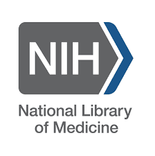
Geographic and Temporal Trends in COVID-Associated Acute Kidney Injury in the National COVID Cohort Collaborative
Acute kidney injury (AKI) is associated with mortality in patients hospitalized with COVID-19, however, its incidence, geographic distribution, and temporal trends since the start of the pandemic are understudied.
- NIH National Library of Medicine, Clin J Am Soc Nephrol; May 3, 2023

Geisinger places second in national Long COVID Computational Challenge
The nationwide challenge included submissions from universities, medical centers and public-private partnerships. Entrants developed artificial intelligence/machine learning (AI/ML) models and algorithms to identify which patients infected with COVID-19 had a higher likelihood of developing long COVID. Entries used de-identified electronic health records (EHR) data available through the National COVID Cohort Collaborative Data Enclave, a data repository that represents EHR data from more than 70 health centers across the United States.
- The Daily Item; May 2, 2023
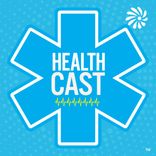
Listen: Cloud is Essential to Scaling and Harmonizing Data at NIH
Dr. Kenneth Gersing, director of informatics in the Division of Clinical Innovation at NCATS, talks about how emerging technologies are helping researchers define long COVID in a more standardized way and how N3C is being used in treating non-COVID related diseases as well as preparing agencies to better handle future health emergencies.
- GovCIO Health Cast Podcast; May 2, 2023

Covid: 65% of people may have been ill several times – Medicine
Most of the world's population has been infected at least once by Sars-Cov-2. In the US, some estimates suggest that 65% of people have had multiple infections, and we are all set to contract Covid-19 multiple times in the decades to come. How much damage repeated infections will cause, though, is a matter of debate among researchers, reports an article in Nature Online.
- Breaking Latest News; April 27, 2023

Are repeat COVID infections dangerous? What the science says
When the coronavirus pandemic began in early 2020, the SARS-CoV-2 virus was a strange and terrifying adversary that plunged the world into chaos. More than three years later, the infection's symptoms are all too familiar and COVID-19 is here to stay --- part of a long list of common diseases that infect humans. Experts estimate that the majority of the world's population has been infected at least once; in the United States, some estimates suggest that as many as 65% of people have had multiple infections. And it's likely that in the decades to come, we're all destined to get COVID-19 many more times.
- nature; Cassandra Willyard; April 26, 2023

FDA Amends Booster Recommendations for Young Children, Rise in Myocardial Infarction Deaths During Omicron, Vaccination Lowers Risk of Major CV Events, and More
The FDA amended its emergency use authorization of the bivalent Pfizer-BioNTech COVID-19 vaccine in pediatric patients. The change allows for the use of a single booster dose of the vaccine in children aged 6 months to 4 years at least 2 months after completing three doses of primary vaccination.
- Consultant 360; Jessica Ganga; April 20, 2023

Piloting an automated clinical trial eligibility surveillance and provider alert system based on artificial intelligence and standard data models
To advance new therapies into clinical care, clinical trials must recruit enough participants. Yet, many trials fail to do so, leading to delays, early trial termination, and wasted resources. Under-enrolling trials make it impossible to draw conclusions about the efficacy of new therapies. An oft-cited reason for insufficient enrollment is lack of study team and provider awareness about patient eligibility. Automating clinical trial eligibility surveillance and study team and provider notification could offer a solution.
- BMC Medical Research Methodology; Stéphane M. Meystre, Teresa J. Kelechi, et al.; April 11, 2023

National COVID Cohort Collaborative (N3C)
Around the country, more than 76 sites are submitting data to the N3C, over 450 research projects are using N3C data, and more than 100 published manuscripts have used N3C data. The MetroHealth System contributes data to N3C, and University Hospitals will do so by mid-2023.
-CLIC; Katie Burke; April 10, 2023
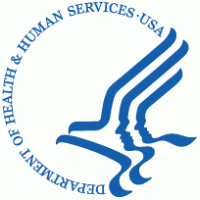
FACT SHEET: Biden-Harris Administration Makes Progress in the Whole-of-Government Response to Long COVID
One year ago today, President Biden issued the Presidential Memorandum and Fact Sheet that directed the Secretary of Health and Human Services to coordinate a whole-of-government response to the longer-term effects of COVID-19, including Long COVID and associated conditions. Chaired by Assistant Secretary for Health Admiral Rachel Levine, the Long COVID Coordination Council, comprised of fourteen federal agencies, published The Services and Supports for longer-term Impacts of COVID-19 - PDF and The National Research Action Plan - PDF reports in response to this call for action.
- HHS.gov; HHS Press Office; April 5, 2023

Palantir’s Plan to Decipher the Mysteries of Long Covid
AT LEAST 65 million people are still suffering from long Covid, the mysterious cocktail of symptoms that persist in some patients more than 12 weeks after an initial infection. Researchers are still working to understand this illness, but it's been slow progress so far.
- Wired; Morgan Meaker; April 4, 2023

Palantir’s Plan to Decipher the Mysteries of Long Covid
At least 65 million people are still suffering from Long Covid, the mysterious cocktail of symptoms that persists for more than 12 weeks after an initial infection in some patients. Researchers are still working to understand this disease, but progress has been slow so far. That's because Covid isn't just a medical problem, it's also a data problem, says Indra Joshi, director of health, research and artificial intelligence at Palantir, which specializes in big data analysis.
- USTimesPost; Zach Zwiezen; April 3, 2023

White House Launches Strategy to Advance Data Privacy Tech and Processes
The White House released comprehensive new recommendations to promote user data privacy for both public and private sector entities, focusing on mitigating bias and maximizing efficiency in an equitable way.
-Nextgov; Alexandra Kelley; March 31, 2023

How vaccination can defend the heart from COVID-19
We know that COVID-19 vaccines are effective at preventing progression of severe disease - but it's been unclear to what extent they protect against secondary complications of the virus, such as its devastating impact on the cardiovascular system.
- MDLinx; Beth Roberts; March 23, 2023

Researchers Are Getting Closer to Learning How to Treat and Prevent Long COVID
Three years into the COVID-19 pandemic, with millions of people around the world suffering from long-term complications of the virus, there is still no proven way to treat or prevent Long COVID---besides not getting infected in the first place.
- TIME; Jamie Ducharme; March 16, 2023

Breakthrough SARS-CoV-2 Similar for Chronic Liver Disease With, Without Cirrhosis
Full vaccination cuts the risk for all-cause mortality for breakthrough severe acute respiratory syndrome coronavirus 2 (SARS-CoV-2) infection among chronic liver disease (CLD) patients with cirrhosis by two-thirds, according to a study published in the March issue of Hepatology.
- Physician's Weekly; March 8, 2023

ACC: COVID-19 Vaccination Cuts Risk for Cardiac Events With SARS-CoV-2 Infection
Partial or complete COVID-19 vaccination is associated with a lower risk for major adverse cardiac events (MACE) after severe acute respiratory syndrome coronavirus 2 (SARS-CoV-2) infection, according to a research letter published in the March 7 issue of the Journal of the American College of Cardiology to coincide with the annual meeting of the American College of Cardiology, held from March 4 to 6 in New Orleans.
- Physician's Weekly; March 8, 2023

ACC: COVID-19 Vaccination Cuts Risk for Cardiac Events With SARS-CoV-2 Infection
Partial or complete COVID-19 vaccination is associated with a lower risk for major adverse cardiac events (MACE) after severe acute respiratory syndrome coronavirus 2 (SARS-CoV-2) infection, according to a research letter published in the March 7 issue of the Journal of the American College of Cardiology to coincide with the annual meeting of the American College of Cardiology, held from March 4 to 6 in New Orleans.
- Billings Gazette; Lori Solomon; March 7, 2023

Breakthrough SARS-CoV-2 Similar for Chronic Liver Disease With, Without Cirrhosis
Full vaccination cuts the risk for all-cause mortality for breakthrough severe acute respiratory syndrome coronavirus 2 (SARS-CoV-2) infection among chronic liver disease (CLD) patients with cirrhosis by two-thirds, according to a study published in the March issue of Hepatology.
- Channel 3000; Lori Solomon; March 7, 2023

ACC: COVID-19 Vaccination Cuts Risk for Cardiac Events With SARS-CoV-2 Infection
Partial or complete COVID-19 vaccination is associated with a lower risk for major adverse cardiac events (MACE) after severe acute respiratory syndrome coronavirus 2 (SARS-CoV-2) infection, according to a research letter published in the March 7 issue of the Journal of the American College of Cardiology to coincide with the annual meeting of the American College of Cardiology, held from March 4 to 6 in New Orleans.
- Channel 3000; Lori Solomon; March 7, 2023

COVID vaccine may lower your risk of heart attacks, strokes after infection, study finds
Studies have shown a COVID-19 infection may increase a person's chances of developing new health issues. Now, new research suggests vaccination may be related to a slightly lower risk of certain cardiac problems after catching the virus.
- The News & Observer; Julia Marnin; March 7, 2023

Why it’s so hard to get answers on long Covid
Scientists have been scrambling to understand long Covid ever since the first SARS-CoV-2-infected patients reported persistent symptoms in early 2020.
- Vox; Keren Landman; March 4, 2023

RECOVER: What Clinical Research Comes Next for Helping People with Long COVID
People, like Nitza Rochez, who are living with Long COVID--- the wide-ranging health issues that can follow an infection with SARS-CoV-2, the coronavirus that causes COVID-19---experience disabling symptoms with significant physical, emotional and financial consequences.
- NIH Director's Blog; Gary Gibbons, M.D.; March 2, 2023

NIH RECOVER research identifies potential long COVID disparities
Black and Hispanic Americans appear to experience more symptoms and health problems related to long COVID, a lay term that captures an array of symptoms and health problems, than white people, but are not as likely to be diagnosed with the condition, according to new research funded by the National Institutes of Health.
- The Highland County Press; March 2, 2023

New Study Finds More Long Term Impacts on the Heart After COVID
An additional study found vaccines actually lowered the risk of Covid-related heart problems.
- Kens5; Jeremy Baker; February 24, 2023

COVID-19 Vaccination Associated With Fewer Major Adverse Cardiovascular Events
Vaccination against COVID-19 is associated with fewer major adverse cardiovascular events (MACE) among people who were previously infected with SARS-CoV-2, a new report suggests.
- Medscape; Carolyn Crist; February 24, 2023

University of Colorado’s Melissa Haendel Leads Research Team to Win $100,000 FASEB DataWorks! Prize
Melissa Haendel, PhD, Chief Research Informatics Officer and Professor at University of Colorado School of Medicine, on behalf of her research team, National Covid Cohort Collaborative, received the Grand Prize in the FASEB DataWorks! Prize competition.
- News Wise; February 23, 2023

RECOVER Research Identifies Potential Long COVID Disparities
NIH-supported studies show variations in symptoms and diagnostic experiences among different racial and ethnic groups.
- POZ; February 22, 2023

In COVID-19 Patients, Vaccination Linked to Lower MACE Risk
Fully vaccinated patients had a 40% lower risk of MACE compared with those who weren't vaccinated, US registry data show.
- TCTMD; Michael O'Riordan; February 22, 2023

New Study Shows COVID-19 Vaccination Linked to Fewer Cardiac Events
New research suggests that vaccination against COVID-19 is associated with fewer heart attacks, strokes, and other cardiovascular issues among people who were infected with SARS-CoV-2, the virus that causes COVID-19.
- XinhuaNet; February 21, 2023

COVID in California: Even 1 Shot Can Lower Heart Attack, Stroke Risks, Study Says
The latest figures from the CDC show the continued rise of the XBB.1.5 subvariant but national COVID trends are mostly flat. The number of U.S. counties classified as having "high" community COVID levels is less than 3% as of Friday.
- San Francisco Chronicle; Aidin Vazari; February 21, 2023

COVID-19 Vaccination May Reduce Post-infection Risk for Major Cardiovascular Events
Vaccination against COVID-19, whether full or partial, was associated with reductions in post-infection risk for major adverse cardiovascular (CV) events (MACE) in an analysis of the most extensive datasets on COVID-19maintained in the US.
- Patient Care; Grace Halsey; February 21, 2023

Vaccinated People Have Fewer Cardiac Events After COVID-19
In a study including data from almost two million individuals, COVID-19 vaccination seemed to have a protective effect against heart attacks, strokes, and cardiovascular problems linked to infection with SARS-CoV-2.
- Inside Precision Medicine; February 21, 2023

Covid can cause heart problems. Here's how the virus may do its damage.
Covid can cause damage to the heart on a cellular level that can lead to lasting problems, including irregular heartbeats and heart failure, preliminary research suggests.
- NBC News; Kaitlin Sullivan; February 20, 2023

COVID-19 Vaccination Can Reduce Cardiovascular Risk Post-Infection, Study Finds
Using data from nearly 2 million US patients with a documented COVID-19 infection, a new study provides an overview of the impact of vaccination, both full and partial, on risk of MACE following infection.
- HCP Live Network; Patrick Campbell; February 20, 2023

COVID-19 Vaccination Linked to Fewer Cardiac Events
First U.S. study to show lower risk in patients following SARS-CoV-2 infection.
- ScienceDaily; February 20, 2023

COVID-19 Vaccination Associated with Fewer Heart Attacks, Strokes, and Other Cardiovascular Issues
Analyzing the most extensive datasets in the United States, researchers from the Icahn School of Medicine at Mount Sinai have revealed that vaccination against COVID-19 is associated with fewer heart attacks, strokes, and other cardiovascular issues among people who were infected with SARS-CoV-2, the virus that causes COVID-19.
- News Medical Life Sciences; Emily Henderson; February 20, 2023

NIH RECOVER Research Identifies Potential Long Covid Disparities
Black and Hispanic Americans appear to experience more symptoms and health problems related to long Covid, a lay term that captures an array of symptoms and health problems, than white people, but are not as likely to be diagnosed with the condition, according to new research funded by the National Institutes of Health (NIH).
- PharmaBiz.com; February 18, 2023

NIH RECOVER Research Identifies Potential Long COVID Disparities
NIH-supported studies show variations in symptoms and diagnostic experiences among different racial and ethnic groups.
- NIH News Releases; February 16, 2023

Long-COVID Subtypes May Help Stratify Patients, Inform Treatment Strategies: Study
Researchers have uncovered distinct long-COVID subtypes they believe may help stratify patients and inform treatment strategies.
- LabPulse.com; January 27, 2023

Six Long COVID Subtypes Identified at The Jackson Laboratory
Over the past three years, it has become clear that, for many people, the effects of SARS-CoV-2 infection persist long after an initial case of COVID-19 wanes.
- Yahoo!; January 27, 2023

VIDEO: Cardiologists Share the Latest Details on COVID-related MIS-C
Nemours Children's Hospital pediatric cardiologists explain lessons learned about cardiac involvement and long-term issues from multisystem inflammatory syndrome in children (MIS-C), a rare but serious disease caused by exposure to the COVID-19 virus.
- Cardiovascular Business; Dave F ornell; January 26, 2023

PCOS Does Not Make COVID-19 Worse for Women
In women who have contracted COVID-19, the presence of polycystic ovary syndrome(PCOS) does not appear to drive the risk of increased disease severity, according to a study.
- MIMS: January 25, 2023

HHS Turns to AI for COVID-19 Research
At the National Heart Lung and Blood Institute (NHLBI), CIO Alastair Thomson says machine learning (ML) played a major role in COVID-related research. The National COVID Cohort Collaborative (NC3) clearly demonstrates the value of securely bringing together data in one place, where it can be analyzed by thousands of researchers. Through collaboration with various healthcare and cloud service providers, the NC3 and ML helped NIH identify potential participants for the RECOVER initiative.
- GovCIO; Katherine McPhail; January 24, 2023

Datavant Secures FedRAMP® Authorization, Trusted by Federal Agencies Through Privacy-Preserving Infrastructure
Datavant, the leader in enabling organizations to securely connect health data, has achieved a major information security designation, Federal Risk and Authorization Management Program (FedRAMP®) Authorization to Operate (ATO) at the Moderate Impact level.
- GlobalNewsWire; January 18, 2023

Study Explores Incidence, Severity, and Long COVID Associations of SARS-CoV-2 Reinfections
In a recent study posted to the medRxiv* preprint server, a team of researchers from the United States used electronic health records to characterize the incidence, biomarkers, attributes, and severity of severe acute respiratory syndrome coronavirus 2 (SARS-CoV-2) reinfections and evaluated the association between reinfections and long coronavirus disease (COVID).
- News Medical Life Sciences; Dr. Chinta Sidharthan; January 10, 2023

Machine Learning Tackles Long COVID: Artificial intelligence software gleans insights from health records to shed light on chronic COVID symptoms
Long COVID has emerged as a pandemic within the pandemic. As scientists work to untangle the many remaining unanswered questions about how the initial infection impacts the body, they must now also investigate why some people develop debilitating, chronic symptoms that last months to years longer.
- News from Berkeley Lab; Aliyah Kovner; January 5, 2023

Delaying HSCT More Than 4 Weeks After COVID-19 Diagnosis May Decrease Risk of Death
Undergoing hematopoietic stem cell transplant (HSCT) within 4 weeks of SARS-CoV-2 infection is associated with an increased risk of death at 90 days after HSCT, according to real-world data presented at the 2022 ASH Annual Meeting.
- Cancer Therapy Advisor; Leah Lawrence; January 4, 2023

T2D Diagnoses Spike Coincident With COVID Onset
Researchers published the study coveredin this summary on medRxiv as a preprint that has not yet been peer reviewed.
- Medscape; Marlene Busko, December 12, 2022

Study explores the risk of new-onset diabetes mellitus following SARS-CoV-2 infections
In a recent study posted to the medRxiv* preprint server, researchers evaluated individuals who had severe acute respiratory syndrome coronavirus 2 (SARS-CoV-2) infections and were diagnosed with diabetes mellitus within six months of the onset of coronavirus disease 2019 (COVID-19) to understand the temporal relationship between SARS-CoV-2 infections and diabetes mellitus.
- News Medical Life Sciences; Dr. Chinta Sidharthan; December 8, 2022

Do SSRIs lower the risk of long COVID?
In a recent study posted to the medRxiv* preprint server, researchers conducted a retrospective study to determine whether selective serotonin reuptake inhibitors (SSRI) with immunomodulatory and antiplatelet properties can decrease the risk of post-acute sequelae of coronavirus disease 2019 (COVID-19) (PASC).
- News Medical Life Sciences; Dr. Chinta Sidharthan ;November 15, 2022

Cancer Research Needs Better Databases
This year, a study of ten million people revealed the power of longitudinal research. A team mined a vast medical database of US military personnel, including tissue samples and health records collected over 20 years. The researchers found that those who had previously been infected with Epstein--Barr virus had a 32-fold higher risk of developing multiple sclerosis --- the strongest evidence yet for a causal link (K. Bjornevik Science 375, 296--301; 2022).
- Nature; T. S. Karin Eisinger-Mathason; October 25, 2022

What is the Impact of Pre-COVID Vaccination on Long COVID?
The coronavirus disease 2019 (COVID-19) pandemic, caused by severe acute respiratory syndrome coronavirus 2 (SARS-CoV-2), continues to impact people's lives globally even after two years. The World Health Organization (WHO) has reported over 617 million confirmed cases and more than 6.5 million deaths associated with COVID-19 worldwide.
- News Medical Life Sciences; Suchandrima Bhowmik; October 10, 2022

Patients With RA Face Higher Risk of COVID-19, Hospitalization Even When Vaccinated
Based on their findings, the researchers are emphasizing the importance of patients with rheumatoid arthritis (RA) receiving a booster vaccination, as well as other mitigation strategies, such as social distancing and wearing face masks.
- American Journal of Managed Care (AJMC); Jaime Rosenberg; October 7, 2022

Agencies Must Take an Authentic Approach to Synthetic Data
Artificial intelligence (AI) is one of the most strategic technologies impacting all parts of government. From protecting our nation to serving its citizens, AI has proven itself mission critical. However, at its core, there is a growing paradox.
- MeriTalk; October 4, 2022

Understanding Long-Term COVID-19 Symptoms and Enhancing Recovery
We are in the third year of the COVID-19 pandemic, and across the world, most restrictions have lifted, and society is trying to get back to "normal." But for many people---potentially millions globally---there is no getting back to normal just yet.
- NIH Director's Blog; Walter J. Koroshetz, MD; October 4, 2022

Study: SCD Children With Omicron Infection at Risk of Severe Symptoms
Children with sickle cell disease (SCD) are at a high risk of developing severe symptoms after infection with the SARS-CoV-2 Omicron variant, one of the most recent variants of the virus that causes COVID-19, according to a new French study.
- SickleCell Disease News; Patricia Ignacio, PhD; September 22, 2022

How a COVID-19 Mortality Prediction Model Created by CU Data Scientists Could Provide Insights for the Next Pandemic
Tell Bennett, MD, MS, vice chair of clinical informatics in the Department of Biomedical Informatics, recounts how CU research teams collaborated with UCHealth to develop a dynamic modeling strategy to help in case triage efforts were needed in the early
- EurkeAlert/AAAS; September, 22, 2022

What Is the National COVID Cohort Collaborative (N3C) Data Enclave?
N3C gives researchers access to a large enclave of COVID-19 data related to the entire patient journey, including symptoms and outcomes.
- HealthTech Magazine; Jordan Scott; September 2, 2022

The impact of COVID-19 on clinical outcomes among acute myocardial infarction patients undergoing early invasive treatment strategy
The implications of coronavirus disease 2019 (COVID-19) infection on outcomes after invasive therapeutic strategies among patients presenting with acute myocardial infarction (AMI) are not well studied.
- Wiley Online Library; August 30, 2022

What risk factors are associated with post-acute sequelae of SARS-CoV-2?
In a recent study posted to the medRxiv* preprint server, researchers explored the risk factors correlated with post-acute sequelae of severe acute respiratory syndrome coronavirus 2 (SARS-CoV-2) (PASC).
- News Medical Life Sciences, Bhavana Kunkalikar; August 23, 2022

Researcher studies higher rates of heart failure in some COVID-19 patients
Patients previously hospitalized with COVID-19 had a 45 percent higher risk of heart failure than other hospitalized patients, according to the first national study of its kind, which was co-authored by a University of Arkansas for Medical Sciences (UAMS) researcher.
- Guard Online, University of Arkansas for Medical Sciences; August 16, 2022

Preventive medicine in rheumatology: COVID-19 and its lessons for better health outcomes
The COVID-19 pandemic not only persists but represents a substantive ongoing threat to patients on immunosuppressive therapies. Advances in antiviral therapies and vaccines have led to substantially reduced risk, of both infection and adverse outcomes, for people who can access them, but the risk is ongoing as new variants emerge. In this continuing battle, some approaches, such as glucocorticoids, will persist in their original form and some will become irrelevant, such as older neutralising monoclonal antibodies.
- The Lancet Rheumatology, David Liew and Philip Robinson; August 16, 2022

Why monkeypox is a repeat of the data mistakes made with Covid-19
The US declared monkeypox a public health emergency this month, but the decision may have come too late. Though states are now required to report cases, and commercial labs have an approved test, a testing bottleneck persists, and cases --- which passed 10,000 confirmed cases this week --- are likely still being underreported.
- Vox, Miranda Dixon-Luinenburg; August 14, 2022

Why Monkeypox Is A Repeat Of The Data Mistakes Made With Covid-19
The US declared monkeypox a public health emergency this month, but the decision may have come too late. Though states are now required to report cases, and commercial labs have an approved test, a testing bottleneck persists, and cases --- which passed 10,000 confirmed cases this week --- are likely still being underreported.
- My Droll, Mathews John; August 14, 2022

UVM & Maine partners receive $20 million grant to reduce disparities, improve health in Northern New England
Vermont Business Magazine Vermont and Maine have the oldest populations in the U.S., which coupled with rurality, predisposes northern New Englanders to health challenges including cancer, substance use disorders, food insecurity, obesity, diabetes, Alzheimer's and cardiovascular disease.
- Vermont Biz; August 11, 2022

UAMS Researcher Co-Authors Nature Communications Article Showing Higher Heart Failure Rates in Some COVID-19 Patients
Patients previously hospitalized with COVID-19 had a 45% higher risk of heart failure than other hospitalized patients, according to the first national study of its kind, which was co-authored by a University of Arkansas for Medical Sciences (UAMS) researcher.
- UAMS, David Robinson; August 11, 2022

CBD “shows promise” for Covid-19 – but more evidence needed
The authors of a new review paper have concluded that CBD shows "promising anti-inflammatory effects" in the treatment of Covid-19 symptoms and have recommended that more research be carried out.
- CannabisHealth, Sarah Sinclair: August 8, 2022

No Worsening Cardiac Dysfunction in Long COVID
In Norway, COVID survivors did not show progressive changes in cardiac structure and function that would explain persistent symptoms months later, a cohort study showed.
- Medpage Today, Nicole Lou: August 5, 2022

Is cannabidiol effective against COVID-19?
The coronavirus disease 2019 (COVID-19), which is caused by infection with the severe acute respiratory syndrome coronavirus 2 (SARS-CoV-2), has caused over 6.4 million deaths to date.
- News Medical Life Sciences, Dr. Liji Thomas, MD: July 31, 2022

COVID-19 and heart failure; Menstrual changes with COVID vaccine; Young age and COVID-19
COVID-19 hospitalization is associated with a 45% greater risk of subsequent heart failure (HF), particularly for patients who are younger, White, or previously diagnosed as having heart disease, according to a US study published late last week in Nature Communications.
-CIDRAP: July 18, 2022

What is the association between PASC-AMs and the diagnosis of new-onset psychiatric illness after acute SARS-CoV-2 infections?
In a recent study posted to the medRxiv* preprint server, researchers investigated if non-psychiatric PASC-AMs [post-acute sequelae of severe acute respiratory syndrome coronavirus 2 (SARS-CoV-2) infection-associated manifestations] increase the risk of new-onset psychiatric illness diagnosis.
- News Medical Life Sciences, Pooja Toshniwal Paharia: July 12, 2022

Big data and long COVID
In this issue, Emily Pfaff and colleagues show that machine learning analysis of electronic health records could be crucial in diagnosing patients with long COVID. This is the latest in a plethora of studies to use big data to determine prevalence, symptoms, or risk factors for long COVID. But is big data helping to treat patients with this heterogeneous condition, or should we be redirecting our efforts elsewhere?
- The Lancet Digital Health: July 1, 2022

RISK OF PSYCHIATRIC ILLNESS UP IN THE EARLY POST-ACUTE COVID-19 PHASE
TUESDAY, June 14, 2022 (HealthDay News) -- Patients are at increased risk for emerging psychiatric conditions in the early post-acute phase of COVID-19 infection, according to a letter to the editor published in the June issue of World Psychiatry.
- Community 99: June 15, 2022

Covid-19 increases risk of psychiatric diagnoses in the months after infection
New research shows that people who recovered from Covid-19 had an estimated 25% increased risk of developing a psychiatric disorder in the four months after infection.
- News 24, Nelisiwe Msomi: June 14, 2022

Risk for Psychiatric Illness Up in Early Postacute COVID-19 Phase
TUESDAY, June 14, 2022 (HealthDay News) -- Patients are at increased risk for new-onset psychiatric conditions in the early postacute phase of COVID-19 infection, according to a letter to the editor published in the June issue of World Psychiatry.
- Health Day: June 14, 2022

Risk for Psychiatric Illness Up in Early Postacute COVID-19 Phase
TUESDAY, June 14, 2022 (HealthDay News) --- Patients are at increased risk for new-onset psychiatric conditions in the early postacute phase of COVID-19 infection, according to a letter to the editor published in the June issue of World Psychiatry.
- Physicians Weekly: June 14, 2022

COVID-19 Increases Risk Of Psychiatric Diagnoses Months After Infection: Study
A study conducted by Oregon State University researchers has discovered that COVID-19 patients had a 25 percent increased risk of developing a psychiatric disorder four months post their infection.
- India Times, Monit Khanna: June 12, 2022

Mental Health Warning: Study Shows High Post-COVID Anxiety Disorder Risk
Scientists have urged patients and health care staff to be more proactive about addressing mental health concerns as a new study identifies a higher risk of psychiatric disorders among people suffering from COVID-19.
- Newsweek, Thomas Hochwarter: June 9, 2022

Study: Covid may up risk of psychiatric disorders
Covid-19 may increase the risk of developing a psychiatric disorders in the months after infection with the SARS-CoV-2 virus, according to a study conducted in the US.
- The Tribune: June 8, 2022

OSU Researcher’s Work Links COVID Infection To Risk Of Anxiety Disorders
CORVALLIS, Ore. --- An Oregon State University researcher worked on a nationally published study, that shows people who get COVID-19, have a higher risk of anxiety disorders. O.S.U. Ph.D. student, and Oregon native Lauren Chan co-authored the study.
- KXL: June 8, 2022

COVID-19 may increase risk of psychiatric disorder months later: Study
Washington: COVID-19 may increase the risk of developing a psychiatric disorder in the months after infection with the SARS-CoV-2 virus, according to a study conducted in the US.
- East Mojo, Press Trust of India: June 8, 2022

Racial and ethnic differences in COVID-19 outcomes: a call to action
The COVID-19 pandemic has demanded a huge effort to identify the risks associated with poor outcomes. The focus has been particularly relevant in patients with immune-mediated inflammatory diseases and those on therapies that suppress the immune system. Small early observational studies looked worrisome, but as data from larger studies became available a consistent picture became evident. Demographic risk factors such as age and comorbidity are really the salient factors, with some risk from underlying disease and a few specific therapeutic agents, such as rituximab.
- The Lancet, Philip Robinson: June 8, 2022
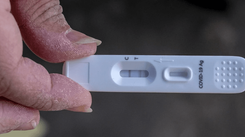
Long Covid: disease increases the risk of psychiatric problems by 25% | Health
A study done by Oregon State University in the United States found that people who have recovered from Covid-19 have a 25% higher risk of developing a psychiatric disorder in the four months after infection, compared to people who have other respiratory tract infections.
- Play Crazy Game, Jenni Smith: June 8, 2022

COVID-19 patients at heightened risk of mental health diagnosis following infection, study finds
COVID-19 patients were at a 25 percent greater risk of developing a psychiatric disorder in the months after infection than those who experienced other respiratory illnesses, according to a recent study.
- The Hill, Adam Barnes: June 8, 2022
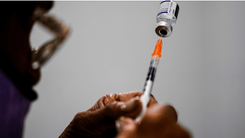
Psychiatric disorders more likely following COVID diagnosis, OSU study shows
Portland, Ore. (KATU) --- Health officials and researchers say they are learning more about coronavirus every day.
- News 5, Frances Lin: June 7, 2022

Psychiatric disorders more likely following COVID diagnosis, OSU study shows
Portland, Ore. --- Health officials and researchers say they are learning more about coronavirus every day.
- Komo News, Frances Lin: June 7, 2022

COVID-19 may increase risk of psychiatric disorder in months after infection: Study
COVID-19 may increase the risk of developing a psychiatric disorder in the months after infection with the SARS-CoV-2 virus, according to a study conducted in the US. Researchers at the Oregon State University (OSU) in the US found that COVID-19 patients had about 25 per cent increased risk of developing a psychiatric disorder in the four months following their infection, compared with people who had other types of respiratory tract infections.
- The Economic Times: June 7, 2022

Northwestern Investigates COVID-19: Omicron, Vaccines, Pediatric Complications
Northwestern Medicine investigators have continued to examine COVID-19, from the impact of prone positioning during treatment to vaccine protection against the Omicron variant in children.
- Northwestern Medicine, Will Doss: June 7, 2022

COVID-19 increases risk of psychiatric diagnoses in the months after infection, OSU study finds
CORVALLIS, Ore. --- A recent Oregon State University study found that COVID-19 patients had a roughly 25% increased risk of developing a psychiatric disorder in the four months following their infection, compared with people who had other types of respiratory tract infections.
- Oregon State University, Molly Rosbach: June 6, 2022

COVID-19 patients have increased risk of new‐onset psychiatric disorders after infection
A recent Oregon State University study found that COVID-19 patients had a roughly 25% increased risk of developing a psychiatric disorder in the four months following their infection, compared with people who had other types of respiratory tract infections.
- News Medical Life Sciences, Emily Henderson: June 6, 2022

COVID-19 INCREASES THE RISK OF PSYCHIATRIC DIAGNOSES IN THE MONTHS AFTER INFECTION, OSU STUDY FINDS
CORVALLIS, Ore. -- A recent study from Oregon State University showed that COVID-19 patients had an approximately 25% increased risk of developing a psychiatric disorder in the four months after their infection, compared to people who had other types of respiratory infections.
- Community 99: June 6, 2022

Q&A: Machine learning models identify patients with long COVID
NIH researchers using machine learning models identified key characteristics of people who have or likely have long COVID.
- Healio, Maria Marabito and Emily Pfaff: June 1, 2022

CDC Says About 20% Get Long COVID. New Models Try Define It
As the number of people reporting persistent, and sometimes debilitating, symptoms from COVID-19 increases, researchers have struggled to pinpoint exactly how common so-called "long COVID" is, as well as how to clearly define exactly who has it or who is likely to get it.
- Medscape, Kathleen Doheny: June 1, 2022

Scientists identify characteristics to better define long COVID
A research team supported by the National Institutes of Health has identified characteristics of people with long COVID and those likely to have it.
- The Highland County Press: May 31, 2022

RESEARCHERS USE MACHINE LEARNING TO IDENTIFY US PATIENTS WITH LONG COVID
A group of Northeastern researchers is tapping into the power of machine learning to develop new models for identifying patients who may have post-acute sequelae of SARS-CoV-2 infection, or so-called "long COVID."
- News at Northeastern, Tanner Stening: May 31, 2022

UNC School of Medicine Researchers Identify Long COVID Patients In The USA Using Machine Learning
Clinical scientists have explored de-identified electronic health record data in the National COVID Cohort Collaborative(N3C), a National Institutes of Health-funded national clinical database, using machine learning models to help decipher characteristics of individuals with long COVID and attributes that may help identify such patients using information from medical records.
-Mark Tech Post, Kriti Maloo: May 28, 2022

PFIZER-BIONTECH’S COVID-19 VACCINE IS EFFECTIVE IN YOUNG CHILDREN
Machine learning models may be able to predict who will develop Covid-19, FDA authorizes a home test to detect coronavirus, influenza and respiratory syncytial virus (RSV) and more in this week's review of Covid-19 news.
- Community99: May 27, 2022

Investigators Identify Characteristics to Better Define Long COVID
Investigators have identified characteristics of individuals with long COVID and those who are likely to have it by using machine learning techniques.
- Pharmacy Times, Ashley Gallagher: May 27, 2022

Covid-19 roundup: Pfizer-BioNTech's Covid-19 vaccine is effective in young children
Machine learning models may be able to predict who will develop Covid-19, FDA authorizes an at-home test to detect the coronavirus, flu, and respiratory syncytial virus (RSV), and more in this week's roundup of Covid-19 news.
-Advisory Board: May 27, 2022

The National COVID Cohort Collaborative (N3C) Privacy-Preserving Record Linkage Powered by Datavant and Regenstrief Wins 2022 FedHealthIT Innovation Award
SAN FRANCISCO, May 24, 2022 (GLOBE NEWSWIRE) -- Datavant, the leader in helping organizations securely connect health data today announced that the National COVID Cohort Collaborative Privacy-Preserving Record Linkage (N3C PPRL), powered by Datavant technology and Regenstrief Institute's Linkage Honest Broker services, has been recognized with a 2022 FedHealthIT Innovation Award.
- Globe Newswire: May 24, 2022

Regenstrief, Indiana CTSI, Datavant honored for support of NIH project with 2022 FedHealthIT Innovation Award
Regenstrief Institute, Indiana Clinical and Translational Sciences Institute (CTSI), the National Center for Advancing Translational Sciences (NCATS) of the National Institutes of Health (NIH) and Datavant have been honored with a 2022 FedHealthIT Innovation Award for the National COVID Cohort Collaborative (N3C) Privacy Preserving Record Linkage (PPRL).
- Regenstrief Institute: May 24, 2022

The National COVID Cohort Collaborative (N3C) Privacy-Preserving Record Linkage Powered by Datavant and Regenstrief Wins 2022 FedHealthIT Innovation Award
SAN FRANCISCO, May 24, 2022 (GLOBE NEWSWIRE) -- Datavant, the leader in helping organizations securely connect health data today announced that the National COVID Cohort Collaborative Privacy-Preserving Record Linkage (N3C PPRL), powered by Datavant technology and Regenstrief Institute's Linkage Honest Broker services, has been recognized with a 2022 FedHealthIT Innovation Award.
- Yahoo!Finance: May 24, 2022

Are you at risk of developing long COVID? This computer program may be able to tell
Scientists may have found a way to identify who is susceptible to long COVID, thanks to machine learning and artificial intelligence.
- Windsor Star, Chris Arnold: May 20, 2022

Identification of long COVID patients through machine learning
In a recent study posted to Preprints with The Lancet*, researchers developed a machine learning approach to identify patients with long coronavirus disease (COVID).
- News Medical Life Sciences, Bhavana Kunkalikar: May 20, 2022

IMPACT OF NSAIDS ON COVID-19 SEVERITY
Since its emergence in late 2019, the severe acute respiratory syndrome coronavirus 2 (SARS-CoV-2) has infected over 525 million people and caused more than 6.28 million deaths globally. SARS-CoV-2 infection results in coronavirus disease 2019 (COVID-19), which is characterized by a wide range of symptoms with severe effects, including pneumonia and hypoxemic respiratory failure.
- Community 99: May 19, 2022

Scientists identify characteristics to better define long COVID: NIH
A research team supported by the National Institutes of Health has identified characteristics of people with long COVID and those likely to have it. Scientists, using machine learning techniques, analysed an unprecedented collection of electronic health records (EHRs) available for COVID-19 research to better identify who has long COVID. Exploring de-identified EHR data in the National COVID Cohort Collaborative (N3C), a national, centralised public database led by NIH's National Center for Advancing Translational Sciences (NCATS), the team used the data to find more than 100,000 likely long COVID cases as of October 2021 (as of May 2022, the count is more than 200,000). The findings appear in The Lancet Digital Health .
- EH News Bureau: May 19, 2022

Loss of Smell, Taste Less Likely With Newer COVID-19 Variants
WEDNESDAY, May 18, 2022 (HealthDay News) -- Loss of smell and taste are less likely with new COVID-19 variants when compared with the initial untyped COVID-19, according to a study published online May 3 in Otolaryngology -Head and Neck Surgery.
- Health Day: May 18, 2022

Building a Data Infrastructure for the Bioeconomy
While the development of vaccines for COVID-19 has been widely lauded, other successful components of the national response to the pandemic have not received as much attention. The National COVID Cohort Collaborative (N3C), for example, flew under the public's radar, even though it aggregated crucial US public health data about the new disease through cross-institutional collaborations among government, private, and nonprofit health and research organizations.
- Issues in Science and Technology, Gopal P. Sarma, Melissa Haendel: May 18, 2022

NIH scientists use machine learning AI to narrow down risk factors for long COVID
Since the early months of the COVID-19 pandemic, doctors and scientists have been mystified by the occurrence of what's come to be known as long-haul COVID or simply long COVID, in which individuals experience symptoms that last for weeks or months after the initial coronavirus infection has passed.
- Fierce Biotech, Andrea Park: May 18, 2022
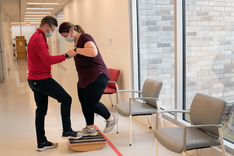
Over 75 Percent of Long Covid Patients Were Not Hospitalized for Initial Illness, Study Finds
Researchers analyzed the largest database of private insurance claims in the United States in the first four months after a diagnostic code for long Covid was created.
- New York Times, Pam Belluck: May 18, 2022

Scientists use machine learning models to help discern characteristics of people with long-COVID
Clinical scientists used machine learning (ML) models to explore de-identified electronic health record (EHR) data in the National COVID Cohort Collaborative (N3C), a National Institutes of Health-funded national clinical database, to help discern characteristics of people with long-COVID and factors that may help identify such patients using data from medical records.
- News Medical Life Sciences, Emily Henderson: May 17, 2022

Using Machine Learning, Researchers Find Patterns In Electronic Health Record Data To Better Identify Those Likely To Have The Condition — ScienceDaily
A research team supported by the National Institutes of Health has identified characteristics of people with long COVID and those likely to have it. Scientists, using machine learning techniques, analyzed an unprecedented collection of electronic health records (EHRs) available for COVID-19 research to better identify who has long COVID.
- Verve Times, Addrew Shawn: May 17, 2022

Scientists identify characteristics to better define long COVID
A research team supported by the National Institutes of Health has identified characteristics of people with long COVID and those likely to have it. Scientists, using machine learning techniques, analyzed an unprecedented collection of electronic health records (EHRs) available for COVID-19 research to better identify who has long COVID.
- National Institutes of Health: May 16, 2022

Smell and taste loss less likely with newer COVID-19 variants
RICHMOND, Va. (May 10, 2022) --- People infected with the COVID-19 omicron variant are significantly less likely to develop smell and taste loss compared to those infected by delta and earlier COVID-19 variants, according to results published this month by Virginia Commonwealth University researchers in the journal Otolaryngology --- Head and Neck Surgery.
- VCU Health: May 11, 2022

Sharing EHR records could unlock their true potential, says health data experts
When the tangle of data locked in EHRs is decoded and shared between organizations and institutions, important health insights can be discovered, Naturereported May 3.
- Beckers Hospital Review, Georgia Gonzalez: May 4, 2022

Health Data for All
For the gastrointestinal condition known as ulcerative colitis, some physicians recommend using a particular drug twice a day, others, three times. But which protocol is the best way to help people with the condition to avoid surgery? Instead of launching a clinical trial, Peter Higgins, a gastroenterologist at the University of Michigan at Ann Arbor, examined the data.
-Nature, Jyoti Madhusoodanan: May 3, 2022

Researchers test the power of machine learning to unravel long Covid’s mysteries
Long Covid, with its constellation of symptoms, is proving a challenging moving target for researchers trying to conduct large studies of the syndrome. As they take aim, they're debating how to responsibly use growing piles of real-world data --- drawing from the full experiences of long Covid patients, not just their participation in stewarded clinical trials.
- Stat News, Katie Palmer: April 29, 2022

Synthetic data accurately replicates the results of analyses from real COVID-19 patient data
Research led by Washington University School of Medicine in St. Louis has demonstrated that analyzing synthetic data generated from real COVID-19 patients accurately replicates the results of the same analyses conducted on the real patient data.
- News Medical Life Sciences, Emily Henderson: April 27, 2022

Synthetic data mimics real patient data, accurately models COVID-19 pandemic
While caring for COVID-19 patients, health-care professionals across the country have amassed a treasure trove of information about SARS-CoV-2, its evolving variants such as delta and omicron, and their effects on the human body and public health.
-Washington University School of Medicine, Julia Evangelou Strait: April 27, 2022

Study evaluates the use of a diagnostic code for Long COVID
In a recent study posted to the medRxiv* preprint server, researchers evaluated the use of U09.9, an International Classification of Diseases, Tenth Revision, Clinical Modification (ICD-10-CM) code described as 'Post coronavirus disease 2019 (COVID-19) condition, unspecified' for post-acute COVID-19 sequelae (long COVID).
- News Medical Life Sciences, Pooja Toshniwal Paharia: April 21, 2022

Alert! Omicron increases the risk of heart attack in children: Report
Digital Desk: According to a study conducted by researchers from the University of Colorado, Northwestern University, and Stony Brook University in the United States, the coronavirus variant Omicron is more likely than other variants to cause upper airway infection (UAI) in children, putting them at risk of heart attack and other severe issues.
- Prag News, Dhupali Das: April 19, 2022

Omicron More Likely To Cause Upper Airway Infections Among Children Than Previous Covid Varieties, Study Says
The omicron variant is more likely than other coronavirus variants to cause upper airway infection (UAI) among children, which puts them at risk of heart attack and other severe complications, even as the overall risk for serious illness for children remains low, according to a study published Friday by JAMA Pediatrics.
- Forbes, Zachary Snowdon Smith: April 15, 2022

Clinical, social, and policy factors in COVID-19 cases and deaths: methodological considerations for feature selection and modeling in county-level analyses
There is a need to evaluate how the choice of time interval contributes to the lack of consistency of SDoH variables that appear as important to COVID-19 disease burden within an analysis for both case counts and death counts.
-BMC Public Health: April 14, 2022

COVID-19 Vaccine Largely Protects Cancer Patients
MONDAY, April 11, 2022 (HealthDay News) -- Real-world evidence shows that patients with cancer have a higher risk for developing breakthrough COVID-19 infections and severe outcomes, according to a study published online March 14 in the Journal of Clinical Oncology.
- Health Day News: April 11, 2022

Research Finds COVID-19 Vaccine Protects Most Patients With Cancer, but Risk Remains Higher for Patients With Blood Cancers
Using the nation's largest COVID-19 data resource, a research team found that the COVID-19 vaccine offered protection for most patients with cancer. However, patients with certain types of cancer---especially those with hematologic malignancies---had a higher and widely varied risk of breakthrough COVID-19 infections after being vaccinated. These findings were published by Song et al in the Journal of Clinical Oncology.
- The ASCO Post: April 8, 2022

Risk of Breakthrough COVID-19 Higher for Patients With Cancer
Patients with cancer have a higher risk of breakthrough COVID-19 after vaccination when compared with patients who don't have cancer, according to research published in the Journal of Clinical Oncology.
- Cancer Therapy Advisor, John Schieszer: April 7, 2022

COVID-19 Roundup: Convalescent Plasma, Ivermectin Efficacy, Aspirin Use
Individuals with COVID-19 who are treated with convalescent plasma within 9 days of symptom onset may have a reduced risk of disease progression and hospitalization, according to the results of a recent study.
- Consultant360, Leigh Precopio: April 7, 2022

Vir Biotechnology Scientists Named Winners of the BARDA and HHS-Sponsored Pediatric COVID-19
SAN FRANCISCO, April 06, 2022 (GLOBE NEWSWIRE) -- Vir Biotechnology, Inc. (Nasdaq: VIR) today announced that a team of three company scientists were named one of the winners of the Pediatric COVID-19 Data Challenge, sponsored by the Biomedical Advanced Research and Development Authority (BARDA) and the U.S. Department of Health and Human Services (HHS).
- Globe Newswire, April 6, 2022

Study says duplilumab reduces mortality from COVID-19
Severe acute respiratory syndrome coronavirus 2 (SARS-CoV-2), the virus that causes Coronavirus Disease 2019 (COVID-19), continues to plague the globe.
- News Medical, Nidhi Saha: April 5, 2022

Vaccinated patients with blood cancers are at higher risk of breakthrough COVID than other cancers, study says
COVID-19 vaccines protect most cancer patients from contracting COVID or severe cases, however; those with blood cancers do not get the same protective benefit, according to a research study at the Indiana University Melvin and Bren Simon Comprehensive Cancer Center in Indianapolis.
- Yahoo, Amy McGorry: April 4, 2022

Effectiveness of COVID-19 Booster Vaccination
Booster vaccination against COVID-19 was found to reduce risk of COVID-19-related death regardless of immune status, according to the results of a study presented at the 2022 Conference for Antiretrovirals and Opportunistic Infections (CROI).
-- Consultant360, Ellen Kurek: April 1, 2022

NIH Gears Up for Data Sharing Policy, Modernized Biomedical Data Ecosystem
The National Institutes of Health (NIH) is creating infrastructure capabilities and new programs to promote data discovery, use and sharing in alignment with its upcoming data management policy. "Our goals are to catalyze data science. capabilities across all the 27 institutes and centers at NIH," Susan Gregurick, associate director for data science and director of the Office of Data Science Strategy, said at GovCIO Media & Research's Infrastructure: Health IT virtual event. "We do that by working with a very large number of colleagues across NIH --- almost over 200 NIH staff work with us on various teams --- to help us implement different data science strategy capabilities."
-- GovCIO Media & Research, Sarah Sybert: March 31, 2022
Researchers Mine EHR Data to Identify Long-COVID Patients
A research team has used the National COVID Cohort Collaborative's (N3C) EHR repository to develop machine learning models to identify potential long-COVID patients. Their research is part of the NIH Researching COVID to Enhance Recovery (RECOVER) Initiative, which is addressing the need to understand long-COVID and identify treatments.
-- Healthcare Innovation, David Raths: March 31, 2022

Aspirin reduces risk of death from covid-19 – study finds
Aspirin lowers the risk of death from covid-19 by up to 13.6%, says a new study published in the journal Jama Network Open. The study covered 112,269 patients who were hospitalized due to SARS-CoV-2 infection and was undertaken by scientists at George Washington University in the United States.
-- Revyuh, Jiya Saini: March 30, 2022

Aspirin May Lower Death Risk in Patients with Moderate COVID, Study
A large study conducted by researchers at George Washington University has found that hospitalized patients with moderate COVID who were given aspirin had a lower risk of dying compared to those who were not given the drug, according to Science Daily.
-- MyHealthyClick, Justin Thompson: March 28, 2022

It's Not Over for Aspirin in Moderate COVID-19
People with moderate COVID-19 illness tended to have better clinical outcomes if they took aspirin their first day in the hospital, according to data from the NIH's National COVID Cohort Collaborative.
-- MedPage Today, Nicole Lou: March 24, 2022

Early aspirin use may lower mortality risk in adults hospitalized with COVID-19
Among patients hospitalized with moderate COVID-19, those who received aspirin on the first day of hospitalization had a significantly lower risk for 28-day mortality than those who did not, according to a recent observational cohort study.
-- Healio, Stephanie Viguers: March 24, 2022

Aspirin May Reduce Death In Hospitalized COVID-19 Patients
Researchers at the George Washington University published findings from the world's largest cohort study showing that hospitalized patients with moderate COVID-19 who were given aspirin early on in their treatment had a lower risk of dying compared to patients who were not given aspirin.
-- Newswise: March 24, 2022

Glycemic Control a Risk Factor for Poor COVID-19 Outcomes Among Patients With Type 2 Diabetes
Poor glycemic control was found to be associated with increased risk for COVID-19 hospitalization and mortality, according to the results of a retrospective study published in Diabetes Care.
-- Endocrinology Advisor, Jessica Nye, PhD: March 21, 2022

HbA1c levels linked to hospitalization risk in patients with type 2 diabetes, COVID-19
For patients with type 2 diabetes and COVID-19, the risk for hospitalization increased with incrementally higher HbA1c levels, according to results of a large, multicenter cohort study.
-- Healio, Brian Ellis: March 16, 2022

COVID Vax Effectiveness Quantified in Immunosuppressed Patients
People taking immunosuppressive drugs benefit significantly from SARS-CoV-2 vaccines approved in the United States to prevent and reduce the severity of COVID-19, according to the first study to quantify the vaccines' real-world effectiveness in this population.
-- Medscape, Richard Mark Kirkner: March 10, 2022

CT researchers validate long COVID as disabling: It’s not ‘all in your head'
Sen. Tim Kaine, D-Va., introduced the CARE for Long COVID Act. The bill seeks to encourage more research and provide resources for those suffering from lingering COVID-19 symptoms and other post-viral illnesses. In a press release, Kaine acknowledged that he is enduring mild long COVID symptoms himself.
-- New Canaan Advertiser, Annelise Hanshaw; March 9, 2022

COVID Vaccine Boosters Protect People With Immune Dysfunction
Receiving an additional COVID-19 vaccine dose provided more protection for people with compromised immunity, according to research presented at the Conference on Retroviruses and Opportunistic Infections 2022 (CROI 2022). While the study did not analyze booster effectiveness based on the specific type of immune dysfunction, it does offer reassurance that this population can benefit from keeping up to date on vaccination.
-- POZ, Liz Highleyman: March 9, 2022

Threshold effect for HbA1c association with poor COVID-19 outcomes
Researchers confirm that higher glycated hemoglobin (HbA1c) levels are associated with a higher risk for poor outcomes in people with type 2 diabetes and COVID-19, but the risk does not increase further beyond a certain threshold.
-- medwireNews, Eleanor McDermid: March 8, 2022

Incidence and outcomes of breakthrough SARS-CoV-2 infections in vaccinated chronic liver disease patients
The development of safe and effective vaccines against the severe acute respiratory syndrome coronavirus 2 (SARS-CoV-2) has significantly altered the course of the coronavirus disease 2019 (COVID-19) pandemic. Both clinical trials and real-world evidence have demonstrated that current COVID-19 vaccines are extremely effective, particularly in reducing the risk of severe disease.
-- News Medical, Benedette Cuffari, M.Sc.: March 3, 2022

HHS installs Karl Mathias as chief information officer
The Department of Health and Human Services has appointed Karl Mathias as chief information officer, according to two people familiar with the matter. He becomes the agency's 8th IT leader in seven years, and takes over from George Chambers, who has held the role on an acting basis since Jan. 1.
-- FedScoop, John Hewitt Jones and Dave Nyczepir: March 2, 2022

Biden calls on Congress to fund ‘DARPA for health’ in State of the Union address
President Biden on Tuesday called for lawmakers in Congress to fund a new health R&D agency that would emulate the Department of Defense's emerging technology incubator. "I call on Congress to fund what I call ARPA-H, the Advanced Research Projects Agency for Health," he said during his annual address to the nation.
-- FedScoop, John Hewitt Jones: March 2, 2022

University Researchers Find that CBD Helps Fight COVID-19 Infection in Human Cells
A group of UChicago researchers recently published a study that found that CBD may help block the COVID-19 virus in mice and human cells. Scientists believe that CBD interacts with the host's endoplasmic reticulum and interferon signaling pathways in order to block SARS-CoV-2 replication.
-- The Chicago Maroon, Natalie Hoge: March 1, 2022

Effectiveness of COVID-19 Booster Vaccination
Booster vaccination against COVID-19 was found to reduce risk of COVID-19-related death regardless of immune status, according to the results of a study presented at the 2022 Conference for Antiretrovirals and Opportunistic Infections (CROI). The US National COVID Cohort Collaborative used data from 50 sites to estimate the effectiveness of booster vaccination compared with that of full vaccination (defined as 2 doses of mRNA or 1 dose of Janssen vaccine).
-- Consultant360, Ellen Kurek: March 1, 2022
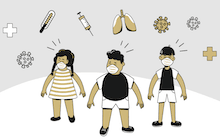
CU-Led National Youth COVID Study Could Speed Care for Sickest Children
In one of the largest studies to date looking at youth and COVID-19, researchers pinpointed traits and initial lab values that signaled which infected children would get the sickest once hospitalized with SARS-CoV-2. The results could help accelerate intensive care and early, more aggressive treatment for at-risk children, potentially improving outcomes.
--- CU Anschutz Newsroom, Debra Melani: Feb. 25, 2022

Does Long-Term Use of Immunosuppressive Medications Inform In-Hospital COVID-19 Outcomes?
Individuals receiving treatment with long-term immunosuppressive medications, except rituximab, and hospitalized for COVID-19 were not found to have an increased risk for invasive mechanical ventilation (IMV) or in-hospital death, according to study results published in Lancet Rheumatology.
--- Renal & Urology News, Sheila Jacobs: Feb. 24, 2022

Can CBD fight COVID-19?
A new study published in Science Advances reports evidence that cannabidiol, a product of the cannabis plant, can inhibit infection by SARS-CoV-2 in human cells and in mice. SARS-CoV-2 is the virus that causes COVID-19.
-- UIC Today, Jacqueline Carey: Feb. 23, 2022

What factors are linked to severe COVID-19 in children?
Since the start of the COVID-19 pandemic, the general understanding of how the disease affects children has shifted, from being seen as a disease with little to no impact on children to children being a significant proportion of patients contracting the virus. However, a lack of large cohort studies has made it difficult to build a robust knowledge base. A recent report sheds some much needed light.
-- Contemporary Pediatrics, Miranda Hester: Feb. 23, 2022

For Children Hospitalized with COVID-19, Factors Identified for Progression to Severe Illness
Demographic characteristics, preexisting comorbidities, and vital sign and laboratory values at the time of hospitalization indicate which children with COVID-19 are at higher risk of severe illness, a recent research article shows.
-- HealthLeaders Media, Christopher Cheney: Feb. 22, 2022

New study identifies risk factors for severe COVID in kids
A new study recently published in the Journal of American Medical Association (JAMA) has identified characteristics, outcomes, and severity risk factors associated with coronavirus infections in American children. The study looked at data from the U.S. National COVID Cohort Collaborative, with 167, 262 children at 56 sites COVID positive and 10, 245 needing to be hospitalized.
--- KRDO, Mallory Anderson: Feb. 16, 2022

PLWH, Aging and the Effects of COVID-19 Outcomes
PLWH may have an accelerated aging process and this could affect the severity of COVID-19. Investigators from the University of South Carolina and the University of Washington wanted to see if this population were more likely to have a more severe case of COVID-19. Adverse outcomes were identified as hospitalization and mortality.
--- Contagion Live, John Parkinson: Feb. 16, 2022

Comparing COVID-19 Vaccination, Boosters for Patients With and Without Immune Dysfunction
One of the ongoing challenges has been full vaccination and booster efficacy among both those with and without immune dysfunction, especially since the Delta and Omicron variants have become the predominant strains. With regards to the immunocompromised, it has been reported that they as a group have a diminished effectiveness with all the COVID-19 vaccines, and now with booster doses, concerns remain about the ability of an extra dose to add protection.
--- Contagion Live, John Parkinson: Feb. 15, 2022

Which children are at higher risk of severe COVID-19?
A new study is providing insight into which children have a higher risk of developing severe complications from COVID-19. The results are now published in the Journal of American Medical Association and one of the authors spearheading the study is in Colorado. The national study was published on Feb. 8 and tracked thousands of children for nearly two years, including kids in Colorado. Doctors and researchers found that overall children handle the virus well, but there's a certain group that's more likely to end up hospitalized.
--- FOX 31 Denver, Talya Cunningham: Feb. 14, 2022

8 risk factors tied to severe COVID-19, MIS-C in kids
Researchers have linked certain risk factors to severe COVID-19 for kids, along with multisystem inflammatory syndrome in children, according to a study published Feb. 8 by JAMA Network Open. Researchers at Denver-based University of Colorado led a study involving patients 18 years and younger tested for COVID-19 at 56 U.S. National COVID Cohort Collaborative facilities up to Sept. 24, before the emergence of the omicron coronavirus variant.
--- Becker's Hospital Review, Gabrielle Masson: Feb. 10, 2022
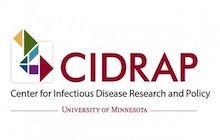
Study reveals risk factors for severe COVID-19, related syndrome in kids
A prospective cohort study of US children diagnosed as having COVID-19 reveals that certain demographic characteristics, preexisting chronic diseases, and initial vital sign and lab values may portend disease severity, a finding that the researchers said could help improve outcomes.
--- CIDRAP - Center for Infectious Disease Research and Policy: Feb. 9, 2022

Which Kids Are More Likely to Develop MIS-C?
A study of more than 1 million children is giving researchers a hint at who may be more likely to develop multisystem inflammatory syndrome (MIS-C) following a COVID-19 infection.
-- MedPage Today, Molly Walker: Feb. 8, 2022

Nationwide study of 'Long COVID' to launch at University of Colorado Anschutz Medical Campus
The National Institutes of Health (NIH) has invested nearly $470 million to build a national study population of diverse research volunteers and support large-scale studies on the long-term effects of COVID-19. The Colorado Clinical and Translational Sciences Institute (CCTSI) is playing a major role in the initiative called REsearching COVID to Enhance Recovery or RECOVER.
-- CU Anschutz Newsroom, Wendy Meyer: Feb. 7, 2022

Study finds pediatric acute upper airway infection cases have increased during the Omicron variant surge
In a study posted to the medRxiv* preprint server, a team of researchers from the United States (US) conducted a retrospective cohort study to determine if pediatric acute upper airway infection (UAI) was more common during the surge of the Omicron (B.1.1.529) strain of severe acute respiratory syndrome coronavirus 2 (SARS-CoV-2) in the US.
--- News Medical, Susha Cheriyedath, M.Sc.: Feb. 3, 2022

The great gaslighting: how Covid longhaulers are still fighting for recognition
People with long Covid face an uphill battle convincing skeptics their malady is real -- but discrediting uncommon conditions is hardly a new phenomenon.
-- The Guardian, Mike Mariani: Feb. 3, 2022

Can CBD Protect You from COVID-19? We’re Breaking Down the Science
In early 2022, a team of researchers published findings showing that an FDA-approved form of CBD helps block replication of several variants of SARS-CoV-2 (aka, the 2019 coronavirus, which causes COVID-19) in lab tests on human lung cells and mice. The findings shared that it can't keep the virus from getting into the cell, but instead keeps the virus from reproducing itself, which can stop the COVID-19 infection in its tracks. Researchers connected this info to CBD's impact on your body's stress and immune responses.
--- Greatist, Samantha Kostaras: Jan. 27, 2022

Does Long-Term Use of Immunosuppressive Medications Inform In-Hospital COVID-19 Outcomes?
Individuals receiving treatment with long-term immunosuppressive medications, except rituximab, and hospitalized for COVID-19 were not found to have an increased risk for invasive mechanical ventilation (IMV) or in-hospital death, according to study results published in Lancet Rheumatology.
-- Rheumatology Advisor, Sheila Jacobs: Jan. 26, 2022

CU Anschutz Research: Innovation in the Face of COVID Crisis
Much has changed in the world since COVID-19 emerged and touched off a global health crisis. The University of Colorado Anschutz Medical Campus and other academic research institutions have been at the heart of the response to the pandemic, aggregating data, making discoveries, running clinical trials and developing therapies. The nature of research has changed during the pandemic, accelerating and becoming more collaborative. In many ways, CU Anschutz has been a leader in adapting to the new landscape, including launching the COVIDome project, publishing the first paper from National COVID Cohort Collaborative (N3C) data, and joining CEAL -- Community Engagement Alliance Against COVID-19 Disparities -- a research effort aimed at identifying and eliminating health disparities.
-- CU Anschutz Newsroom, Chris Casey: Jan. 26, 2022

New Science Continues to Suggest Use of Cannabinoids to Prevent COVID-19 Infection - Largest Global Maker of Raw CBGa and CBDa Products, 101 Hemp, Points to Another Recently Published Study
101 Hemp (https://101hemp.org/) recently noted another promising new study showcasing advances in using cannabidiol in the fight against the ongoing COVID-19 pandemic. Listed on Science.org, "Cannabidiol Inhibits SARS-CoV-2 replication through induction of the host ER stress and innate immune responses," comes on the heels of groundbreaking research out of Oregon State University that also explicitly concluded cannabidiol in the raw form (CBGa and CBDa -- both non-psychoactive) can outright block COVID-19 infection in human cells and mice. In a stunning conclusion, the new study's abstract noted that: "In matched groups of human patients from the National COVID Cohort Collaborative, CBD (100-mg/ml oral solution per medical records) had a significant negative association with positive SARS-CoV-2 tests ... a potential preventative agent for early-stage SARS-CoV-2 infection and merits further clinical trials."
-- Yahoo! Finance: Jan. 26, 2022

Can CBD Help Curb COVID? Maybe, But More Study Needed
Cannabidiol, a compound derived from marijuana, appears to show promise in blocking replication of the COVID-19 virus and preventing its spread, lab and animal studies show. CBD inhibited the ability of the coronavirus to spread in human lung cell samples, and also suppressed COVID-19 infection in the lungs and nasal passages of lab mice. Although research in animals doesn't always pan out in humans, the success of CBD may not be limited to the lab.
-- HealthDay News, Dennis Thompson, Jan. 24, 2022

Researchers recommending human clinical trials for CBD to prevent COVID-19
A team of researchers, including members from the University of Louisville, found that an FDA-approved, pharmaceutical-grade formulation of CBD has an antiviral effect and significant negative association with COVID infection. The study, headed by the University of Chicago and published in Science Advances on Jan. 20, looked at people who tested positive for COVID-19 while taking the approved drug to treat epilepsy, according to a release.
-- WHAS11, Kennedy Thompson: Jan. 24, 2022

Can cannabis compound CBD block COVID? Maybe, but not what’s in stores, study finds
One active ingredient in the cannabis plant -- cannabidiol (CBD) -- could potentially block COVID-19 infection, a new study suggests. If you're wondering if this means you'll be protected from the virus by smoking weed or vaping CBD, the answer is no. Here's what the research means: You might've seen products with the non-psychoactive marijuana compound legally sold in stores and advertised with potential calming capabilities. However, the commercially available CBD that can be infused in food or drinks isn't of the same quality as the CBD used in the study, authors point out in the peer-reviewed research published Jan. 20 in Science Advances.
-- The Olympian, Julia Marnin: Jan. 24, 2022

Oral CBD has been found to prevent COVID-19 infection in humans
We research Cannabidiol found (CBD) effectively blocks the replication of SARS-CoV-2 in human cells. The study was published Thursday in the peer-reviewed journal Advances in Science. A team of 33 researchers from the University of Chicago and the University of Louisville found that people taking 100 milligrams per milliliter of high-purity CBD returned positive COVD-19 tests at a slower rate than control groups that did not take CBD.
-- TheHealthGuild: Jan. 22, 2022

Researchers recommend clinical trials for CBD to prevent COVID-19 based on promising animal data
An interdisciplinary team of researchers from the University of Chicago has found evidence that cannabidiol, or CBD, a product of the cannabis plant, can inhibit infection by the COVID-19 virus in human cells and in mice. The study, published on Jan. 20 in Science Advances, found CBD showed a significant negative association with positive COVID tests in a national sample of medical records of patients taking the FDA-approved drug for treating epilepsy. The researchers now say that clinical trials should be done to determine whether CBD could eventually be used as a preventative or early treatment for COVID-19.
-- University of Chicago News, Matt Reyer: Jan. 21, 2022

CBD Could Help Stop SARS-CoV-2 Replicating Inside Cells, Study Suggests
Cannabidiol, a non-psychoactive chemical in cannabis commonly known as CBD, stops the replication of SARS-CoV-2 in mice and human lung cells in a petri dish in a new study. In another arm of the study, a survey revealed that people taking CBD oil as a treatment for epilepsy were testing positive for COVID-19 at significantly lower rates than people who were not taking CBD.
-- IFLScience, Tom Hale: Jan. 21, 2022

Research shows CBD can prevent Covid from replicating
A study conducted on mice shows that CBD inhibits viral replication without side effects.
-- Spanish News Today: Jan. 21, 2022

Immune dysfunction linked to 'substantial risk' for breakthrough COVID-19 infection
Although vaccines reduce the overall risk for COVID-19 regardless of immune status, patients with immune dysfunction are at a "substantial risk" for breakthrough infection versus those without, according to data. Specifically, the researchers found that patients with rheumatoid arthritis, HIV infection or solid organ transplant had a higher rate of breakthrough infection despite being fully vaccinated against COVID-19.
-- Healio Rheumatology, Jason Laday: Jan. 19, 2022

Digital Health COVID-19 Impact Assessment: Lessons Learned and Compelling Needs
COVID-19 arrived in the context of such promise and demonstration of opportunity---the first global pandemic of the digital age. There have been many shining examples of how digital health solutions have helped in critical ways during the pandemic. Perhaps the most noticeable acceleration, both in the United States and other parts of the world, has been in the rapid adoption of telemedicine, but there have also been less visible digitally-dependent advances that are just as important across all sectors of health care, public health, and medical research. In many ways, the response to COVID-19 sparked years of advances in mere months.
-- National Academy of Medicine: Jan. 18, 2022

Most Immunosuppressive Meds Not Tied to Worse COVID-19 Outcomes
Overall, people taking immunosuppressive medications do not have a higher risk for dying from COVID-19 or being put on a ventilator compared with non-immunosuppressed hospitalized COVID-19 patients, according to a study published online Nov. 15 in The Lancet Rheumatology.
-- HealthDay News: Dec. 1, 2021

Untangling Laboratory Data's Twisted Journey
Researchers are proving the power of aggregating and sharing data across institutions, but progress depends on lab leaders' commitment to data quality and standardization.
-- American Association for Clinical Chemistry, Deborah Levenson: Dec. 1, 2021

Transplantation, HIV infection and immunosuppression: Wright Center scientists contribute to studies using national COVID-19 data
Organ transplant recipients and people living with HIV are more likely to experience adverse effects after contracting COVID-19. And kidney and heart transplant recipients are at highest risk. Those are just some of the conclusions coming from an international team of researchers that includes Virginia Commonwealth University data scientists. Amy Olex, M.S., and Evan French of the Wright Center for Clinical and Translational Research joined that team as co-authors on four recent publications that used data from the National COVID Cohort Collaborative (N3C).
-- C. Kenneth and Dianne Wright Center for Clinical and Translational Research: Dec. 2, 2021

Rituximab increased odds of COVID-19 hospitalization vs. DMARDs for patients with RA
Baseline use of rituximab compared with conventional synthetic disease-modifying antirheumatic drugs was associated with worse COVID-19 outcomes in patients with rheumatoid arthritis, according to a presenter at ACR Convergence 2021. "The COVID-19 pandemic led to several questions regarding the safety of DMARDs that patients with rheumatic diseases use for their management," Namrata Singh, MD, MSCIFACP, assistant professor at the University of Washington, told Healio.
-- Healio Rheumatology, Lisa Holden: Nov. 27, 2021

University of Colorado Anschutz Medical Campus Researchers to Lead Multi-Institution Effort to Study Long COVID
Researchers at the University of Colorado Anschutz Medical Campus will lead a four-year, multi-institution effort to study the effects of post-acute sequelae of SARS-CoV-2 infection (PASC), or long COVID, with more than $11 million in first-year funding from the National Institutes of Health (NIH). More than 30 research teams across the country will study and share data in real time as part of the Researching COVID to Enhance Recovery (RECOVER) Initiative, a centralized effort that will enable research with a nationally representative cohort of patients with long COVID.
-- CU Anschutz Medical Campus, Kelsea Pieters: Nov. 21, 2021

Outcomes for hospitalized COVID-19 patients taking immunosuppressive medications similar to non-immunosuppressed patients, study finds
A large, nationwide study of COVID-19 cases led by researchers at the Johns Hopkins Bloomberg School of Public Health has found that people taking medications that suppress the immune system -- for example, to prevent transplant rejection or to treat cancer -- overall do not have a higher risk of dying from COVID-19 or being put on a ventilator than non-immunosuppressed hospitalized COVID-19 patients.
--- ScienceDaily: Nov. 16, 2021

Out of many, one: COVID database takes root, epitomizes the national ideal
NC3, the NIH-spurred effort to grow a national COVID database from far-flung local siloes, has already yielded an impressive harvest: almost 600 million clinical observations of nearly 6.5 million patients seen at 56 sites.
--- Innovate Healthcare, Dave Pearson: June 22, 2021

It took a pandemic, but the US finally has (some) centralized medical data
The database is now one of the largest collections of covid records in the world, with 6.3 million patient records from 56 institutions and counting, including records from 2.1 million patients with the virus. Most records go back to 2018, and contributing organizations have pledged to keep updating them for five years. That makes N3C not just one of the most useful resources for studying the disease today, but one of the most promising ways to study long covid.
--- Cat Ferguson: June 21, 2021

Introducing National COVID Cohort Collaborative for Data Science-driven EHR Analysis
With healthcare analytics, the N3C platform could benefit all participants to securely integrate electronic patient records (EHR) across states and compare these to build a highly secured and super-beneficial healthcare infrastructure for everyone.
--- Sudipto Ghosh: June 21, 2021

Risk Factors Identified for All-Cause Mortality in Cancer Patients With COVID-19
The study was based on data obtained from the National COVID Cohort Collaborative (N3C), which is a large nationwide cohort of COVID-19 cases and control groups, consisting of outpatients and inpatients seen at various sites across the United States. The analysis included adults from the N3C cohort who had received either a positive or negative COVID-19 diagnostic result between January 1, 2020, and March 25, 2021. From this population, the researchers aimed to develop and characterize a cohort of patients with cancer to examine possible risk factors for mortality with COVID-19.
--- Vicki Moore: June 18, 2021

Palantir Recognized with Amazon Web Services Global Public Sector Partner Award
Palantir's platform was instrumental in the fight against COVID-19 by providing customers a secure platform to integrate, harmonize, and analyze COVID-19 data. At the NIH's National Covid Cohort Collaborative (N3C), Palantir software was used to accelerate research and improve understanding of the disease. More than 1000 researchers used N3C to collaborate on hundreds of projects that ultimately helped guide an effective response to COVID-19. Palantir was also used by other organizations across the U.S. government to better respond to the pandemic.
--- Business Wire, Lisa Gordon: June 17, 2021

Translating Data into Action
In the presentation, "Informatics, Ontology, Data Systems: The N3C," Kenneth Gersing, MD & Christopher Chute, DrPh, MD, MPH explained the workings of the National COVID Cohort Collaborative as a centralized secure portal for hosting patient-level COVID clinical data involving more than 2,000 data scientists from across the nation collaborating on COVID-related data analysis.
--- Mary Therese Phelan: June 10, 2021

How does COVID-19 affect patients with cancer? Largest U.S. study shares first results
In the largest study of its kind to date, researchers analyzing national data from more than 63,000 patients with cancer and a positive COVID-19 diagnosis report an increased risk of death among those who were older, male, had a higher number of comorbidities, and had hematologic cancers and recent chemotherapy treatments.
--- Matt Windsor: June 10, 2021

Most COVID-19 Cases in Solid Organ Transplant Patients Occur in KTRs
Investigators who reviewed data from the largest cohort to date of solid organ transplant (SOT) recipients with COVID-19 found that the viral illness is more likely to occur among those who receive kidney rather than other solid organs, according to a presentation at the virtual 2021 American Transplant Congress.
--- Jody A. Charnow: June 7, 2021
2021 FedHealthIT Innovation Award Winners Announced
The 7th Annual FedHealthIT Innovation Awards recognizes and honors the Federal Health technology and consulting community by celebrating programs nominated and selected by their peers for DRIVING INNOVATION and RESULTS across the Department of Veterans Affairs, Military Health, Health and Human Services, and Centers for Medicare and Medicaid Services.
This year's Program Award Winners were announced over three days, in no particular order. (See entry 19.)
National Institutes of Health, National Center for Advancing Translational Sciences
National COVID Cohort Collaborative (N3C)
N3C is an innovative collaboration program across 70 NIH Clinical and Translational Science Award sites to centralize data on COVID-19 for clinical research. N3C's most innovative aspect is the creation of a secure Data Enclave comprising 1M+ COVID-19 patients from across more than 70 providers and the fostering of a group of more than 1000 researchers using it. N3C has transformed how CTSA sites conduct research, allowing them to form cross-institute research teams accessing much richer datasets. Building the data enclave used industry-leading modern cloud technology, and management of complex organizational change was required to build the community of researchers who are now pursuing training, mentorship, and collaborative science.
--- Heather Seftel-Kirk: May 25, 2021

Unmasking The Covid Realities - The CDC Still Needs To Find The Data
The National COVID Collaborative (N3C) is an electronic health record repository of over 5.6 M+ patients including 1,550,337+ Covid positive patients. This staggering amount of information is held in 6.2 B+ rows of data and provides enough substrate to currently support 173 projects. The projects range from evaluation of anti-thrombotic therapies to the effects of alcohol consumption on Covid-19 outcomes and a host of other studies.
--- Steve Brozak: May 14, 2021

Health Data Sharing Improved During Pandemic, but Barriers Remain
Another large health data sharing project is known as N3C---the National COVID Cohort Collaborative. It is sponsored by the National Center for Advancing Translational Sciences (NCATS), part of the NIH. "The goal of this group is so important," said Kenneth Gersing, MD, the center's director of informatics. To get the database going, NCATS said to its partnering institutions, "We want your data on people who have COVID or 'controls'---people who have not had COVID---and we want their entire medical record, and we'd like it starting in January of 2018," Gersing explained.
--- Joyce Frieden: April 23, 2021
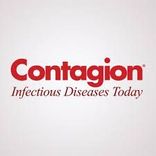
Examining a Connection Between HIV, COVID-19, and Race
Jessica Islam PhD, MPH, assistant professor, University of North Carolina, member of Cancer Epidemiology at Moffitt Cancer Center, was part of a team of investigators who looked at racial disparities of COVID-19 in people living with HIV (PLWH) in the United States. They reviewed COVID-19 positive data and HIV status by using the US National COVID Cohort Collaborative (N3C).
--- John Parkinson: April 11, 2021

Data science talk to focus on COVID-19 database available to Penn State faculty
The National COVID Cohort Collaborative (N3C) , funded by the National Center for Advancing Translational Sciences, is an initiative that seeks to put data into the hands of scientists who are skilled at manipulating or deriving insight from data sets. Penn State Clinical and Translational Science Institute spearheaded the University's participation in the N3C initiative. As part of the initiative, which includes institution-level data usage agreements, Penn State faculty can get free access to the platform without seeking Institutional Review Board approval.
--- Liam Jackson: April 9, 2021

NIH’s COVID-19 data enclave continues to evolve with the virus
The National Center for Advancing Translational Sciences within NIH launched the largest COVID-19 dataset in the U.S., the National COVID Cohort Collaborative(N3C) Data Enclave , in April. And now NCATS wants to use privacy-preserving record linkage (PPRL) to link data from its enclave with medical images, omics tools, electronic health records (EHRs), and social determinants of health to answer researchers' lingering questions like why COVID-19 symptoms linger in some patients.
--- Dave Nyczepir: April 7, 2021

Palantir Issues Additional Details About Life Sciences Capabilities to be Shown at “Double Click” on Wednesday, April 14, 2021
More than 1,000 researchers at the NIH's National COVID Cohort Collaborative (N3C) use Palantir's Foundry to securely maintain one of the largest patient-level data assets of COVID-19 Electronic Health Record (EHR) data in the world and collaborate on more than 150 research projects (as illustrated in this video demonstration by N3C).
--- Lisa Gordon: April 1, 2021

NIH Funds National Project to Promote COVID-19 Data Sharing
UC hospitals have received a $500,000 grant from NIH to enable COVID-19 data sharing on a national scale, allowing collaborations among researchers, providers, and patients.
--- Jessica Kent: March 25, 2021

UC hospitals join NIH's national EHR database collaborative for COVID-19 research
UC Health centers will use the $500,000 grant to integrate the COVID-19 patient data its facilities have collected with the N3C database, making the case records available on a national scale. The UC Health centers participating are UC San Diego, UC Davis, UC San Francisco, UCLA and UC Biomedical, Research, Acceleration, Integration and Development.
--- Jackie Drees: March 25, 2021

UCI to lead transfer of UC COVID-19 patient information to federal database
Dr. Dan M. Cooper, associate vice chancellor for clinical and translational science at UCI, will manage a transfer of UC information on COVID-19 cases into the National COVID Cohort Collaborative's centralized data resource at the NIH's National Center for Advancing Translational Sciences.
--- Newswise, Irvine, California: March 24, 2021

TraCS' Emily Pfaff works with NIH to co-lead long-COVID domain team
The Long-COVID Clinical Domain Team aims to define and characterize patients with long-term sequelae of SARS-CoV-2 infection. These patients continue to experience several symptoms for an extended period of time after recovering from the initial effects of COVID-19 virus. A Long-COVID phenotype will support prognostic characterization of different substrata, potentially more precise care management, and greatly inform prospective interventional studies. The NIH has also just launched a new initiative to study Long COVID to help answer underlying questions surrounding this phenomenon.
--- North Carolina Translational and Clinical Sciences Institute: March 22, 2021

Role of Immunosuppression in the Risk of Severe COVID-19
For those with immunosuppression or are immunocompromised (ISC), it is well-known that they are at an increased risk for more severe forms of disease. During the time of a global pandemic, like that of the currently ongoing COVID-19 virus, the role to which ISC plays is of significant importance.
--- Killian Meara: March 8, 2021

National COVID data repository available to researchers
The National Center for Advancing Translational Sciences-funded National COVID Cohort Collaborative (N3C) is open for business and recruiting interested investigators across the clinical and translational spectrum to engage with this health record repository containing the largest, most representative U.S. cohort of COVID-19 cases and controls to date.
--- Jerrod Anzalone: March 4, 2021

CU Anschutz Physician Publishes First Paper from Data in the National COVID Cohort Collaborative
Tell Bennett, MD, associate professor in the University of Colorado School of Medicine and director of Informatics in the Colorado Clinical and Translational Sciences Institute (CCTSI), has been helping to lead the N3C nationally. He is also the first author on the first preprint to be published from N3C data , The National COVID Cohort Collaborative: Clinical Characterization and Early Severity Prediction.
--- Wendy Meyer: February 17, 2021

Leverage National COVID Cohort Collaborative Data
Researchers across the University of Michigan planning COVID-19 trials can now take advantage of the National COVID Cohort Collaborative (N3C) to inform their research hypotheses.
--- Michigan Institute for Clinical & Health Research: February 2, 2021

NIH-led COVID research effort taps AI startup schooled in synthetic health data
The NIH, FDA and Bill and Melinda Gates Foundation are working with a San Francisco startup whose calling card is an AI-enabled engine that renders patient data unidentifiable by reproducing it in synthetic versions. The startup, Syntegra announced the development Jan 18, 2021. The parties will collaborate around opening access to EHR data as part of the NIH's COVID Cohort Collaborative (N3C), which is marshaling resources and expertise for researchers studying SARS-CoV-2 and its effects on U.S. healthcare.
--- Innovative Health, Dave Pearson: January 20, 2021

The National COVID Cohort Collaborative: Clinical Characterization and Early Severity Prediction
This is the first description of an ongoing longitudinal observational study of patients seen in diverse clinical settings and geographical regions and is the largest COVID-19 cohort in the United States. Such data are the foundation for ML models that can be the basis for generalizable clinical decision support tools. The N3C Data Enclave is unique in providing transparent, reproducible, easily shared, versioned, and fully auditable data and analytic provenance for national-scale patient-level EHR data. The N3C is built for intensive ML analyses by academic, industry, and citizen scientists internationally. Many observational correlations can inform trial designs and care guidelines for this new disease.
--- DocWireNews: January 20, 2021 (Originally Published Here)

Syntegra, NIH, Gates Foundation Partner on COVID-19 Synthetic Patient Data
A San Francisco startup is partnering with the NIH to address a key challenge posed by the agency collecting the largest set of COVID-19 patient records since June: How can access to that repository be broadened for researchers without compromising the privacy of patients who contributed all that data Syntegra plans to tackle that challenge by applying its synthetic data engine to the NIH's National COVID Cohort Collaborative (N3C). The company uses machine learning to create validated "synthetic data"---replicas of healthcare data that are designed to precisely duplicate its statistical properties, with patient privacy protected by removing all links to the original.
--- Clinical Omics, Alex Philippidis: January 20, 2021
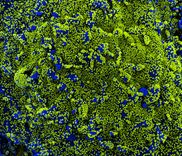
Syntegra collaborates with US NIH to increase access to Covid-19 data
Syntegra and the NIH's National COVID Cohort Collaborative (N3C) have collaborated to expand access to the largest set of Covid-19 patient records using the former's AI-enabled synthetic data technology. Through its Covid-19 Therapeutic Accelerator, the Bill and Melinda Gates Foundation is backing the partnership between Syntegra and the NIH. The NIH will be able to provide far less restricted access to the largest available repository of patient-level Covid-19 electronic medical records using Syntegra's synthetic data engine, can help in rapidly expanding the reach and usage of this data in driving Covid-19 insights, and can set the basis for increasing data access to life science researchers in other major fields of disease understanding and drug and device development.
--- Pharmaceutical Technology: January 19, 2021

Widening Access to COVID-19 Data
California information technology and services company Syntegra and the National Institutes of Health (NIH) have signed a partnership to 'democratize access to the largest set of COVID-19 patient records' with the use of Syntegra's synthetic data engine
--- BioPharma Reporter, Rachel Arthur: January 18, 2021
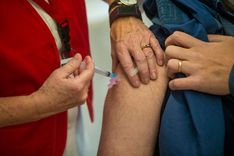
Individuals With Down Syndrome Should Get Vaccinated For COVID-19 Early, CDC Recommends
The Centers for Disease Control and Prevention is recommending individuals with comorbidities get vaccinated from the coronavirus early, which now includes those with Down syndrome. "The increased risk conferred by Down syndrome in terms of COVID-19 hospitalization and mortality is equivalent to adding 40 years to your birth certificate" suggests findings from the United Kingdom published in the Annals of Internal Medicine. Data from the National COVID Cohort Collaborative shows similar trends for Down syndrome patients who have contracted COVID-19 in the U.S.
--- NPR, Lisa Mullins & Samantha Raphelson: January 15, 2021
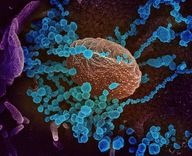
UTHSC’s Madlock-Brown Participating in National COVID Data Research Collaborative
One of UTHSC's data scientists is applying her extensive expertise in informatics to a national effort to leverage big data in the fight against COVID-19. Charisse Madlock-Brown, PhD, MLS, a faculty member in Health Informatics and Information Management at UTHSC, is a co-lead for one of the clinical domain teams of the National COVID Cohort Collaborative (N3C). "As co-lead for the SDoH task team, I can facilitate the development of robust research protocols, integrate various data sets, coordinate training on the N3C platform, collaboratively analyze COVID-19 data, and provide opportunities for investigators to share related research and propose ideas."
--- The Tennessee Tribune: January 14, 2021

Synthetic Data Engine to Support NIH’s COVID-19 Research-Driving Effort
As a partnership between NIH, Syntegra, and the Bill and Melinda Gates Foundation an artificial intelligence-enabled synthetic data generator that converts clinical data of any kind into equivalent versions that don't expose sensitive patient-identifying details is being put to use as a component of the National Institutes of Health-steered National COVID Cohort Collaborative.
--- NextGov, Brandi Vincent: January 14, 2021

AI and ML – Help Change the Course of the Pandemic and Make Money
N3C has a higher potential for business to partner with research in an agile rapid manner than do most research infrastructures. A combination of cloud computing, open data, and hosting ensures that your business can utilize the N3C Data Enclave. This cloud-based platform has taken research from an expensive system that we each need to implement into an inexpensive solution that we can all access. The solution ensures the business will eliminate the traditional costs and time associated with large, expensive research facilities. It allows business to do what it does best: rapidly innovate and leverage data to deploy solutions at facilities around the nation.
--- HIStalk, Jeremy Harper: January 6, 2021

Regenstrief, Indiana CTSI, Datavant partner on NIH national COVID-19 data effort
Regenstrief Institute, Indiana Clinical and Translational Sciences Institute (CTSI) and Datavant are supporting the National Institutes of Health (NIH) in a national effort to securely gather data to help scientists understand and develop treatments for COVID-19. Supported by a contract from the NIH, Regenstrief will serve as the national project's Honest Data Broker, using specialized technologies and processes to create more complete and informative data sets. Specifically, the Honest Data Broker will handle requests for data and manage a process referred to as "privacy-preserving record linkage" (PPRL) using technologies and approaches that help ensure N3C data are shared safely, securely and privately, all in compliance with HIPAA standards.
--- Regenstrief Institute: November 9, 2020

MMCRI Joins National COVID Data Research Collaborative
Maine Medical Center's Research Institute (MMCRI) has received a $203,000 grant sub-award from West Virginia University for a National Institute of General Medical Sciences (NIGMS) initiative to create a centralized national data platform that scientists can use to study COVID-19 and identify potential treatments.
--- Maine Health, Caroline Cornish: October 19, 2020

The Ambitious Effort to Piece Together America's Fragmented Health Data
From the early days of the COVID-19 pandemic, epidemiologist Melissa Haendel knew that the United States was going to have a data problem. There didn't seem to be a national strategy to control the virus, and cases were springing up in sporadic hotspots around the country. The solution Haendel and CD2H landed on sounds simple: a centralized, anonymous database of health records from people who tested positive for COVID-19.
--- The Verge, Nicole Wetsman: October 19, 2020

UK Joins National Data Collaborative for COVID-19 Research
The University of Kentucky' Center for Clinical and Translational Science (CCTS) is partnering with the National Center for Advancing Translational Science (NCATS), the National Center for Data to Health, and around 60 other clinical institutions affiliated with the NCATS Clinical and Translational Science Awards Program to leverage big data in the fight against COVID-19.
--- University of Kentucky, Mallory Powell: July 8, 2020

Manifesting and empowering data sharing for COVID-19 and beyond
Two favorite quotes are at the top of my mind this month: "Much is known, but unfortunately in different heads." and "Be the change you want to see in the world." The first quote reminds us that the answers to the most complex questions require bringing together puzzle pieces held by different people --- and that the more diverse those people are, the more complex the questions we can answer.
--- NCATS, Christopher P. Austin, MD: June 30, 2020

Scripps Research joins national effort to develop medical record analytics to improve COVID-19 patient outcomes
Data scientists at Scripps Research are applying their extensive expertise in informatics to a nationwide effort to enable the research community to access and analyze medical record data from patients diagnosed with COVID-19. The rich data stored in electronic medical records may offer clues to better care for those diagnosed with coronavirus disease.
--- Scripps Research Institute: June 25, 2020

OSU helping to drive National Institutes of Health effort to harness analytics in COVID-19 fight
Oregon State University is helping the National Institutes of Health to harness the power of big data in the fight against COVID-19, the disease caused by the novel coronavirus SARS-CoV-2.
--- Oregon State University Newsroom: June 22, 2020

NIH launches platform for nationwide coronavirus patient data
The National Institutes of Health (NIH) announced Monday a new "centralized, secure enclave" of medical record data from coronavirus patients diagnosed nationwide. The analytics platform is part of a new effort called the National COVID Cohort Collaborative (N3C), to help scientists analyze data to understand the disease and develop treatments, according to a press release.
--- Fox News, Kayla Rivas: June 16, 2020

NIH launches national database to collect medical information from Covid-19 patients
The National Institutes of Health has launched a national database to collect medical information on coronavirus patients in the United States. This effort aims to transform clinical information into knowledge urgently needed to study COVID-19, including health risk factors that indicate better or worse outcomes of the disease, and identify potentially effective treatments.
--- CNN, Shelby Lin Erdman: June 15, 2020

NIH launches analytics platform to harness nationwide COVID-19 patient data to speed treatments
The National Institutes of Health has launched a centralized, secure enclave to store and study vast amounts of medical record data from people diagnosed with coronavirus disease across the country. It is part of an effort, called the National COVID Cohort Collaborative (N3C), to help scientists analyze these data to understand the disease and develop treatments. This effort aims to transform clinical information into knowledge urgently needed to study COVID-19, including health risk factors that indicate better or worse outcomes of the disease, and identify potentially effective treatments.
--- NIH: June 15, 2020

Gathering big data to accelerate the COVID-19 fight
Scientists creating secure, central database of electronic health records from coronavirus patients
--- OHSU, Franny White: May 26, 2020
